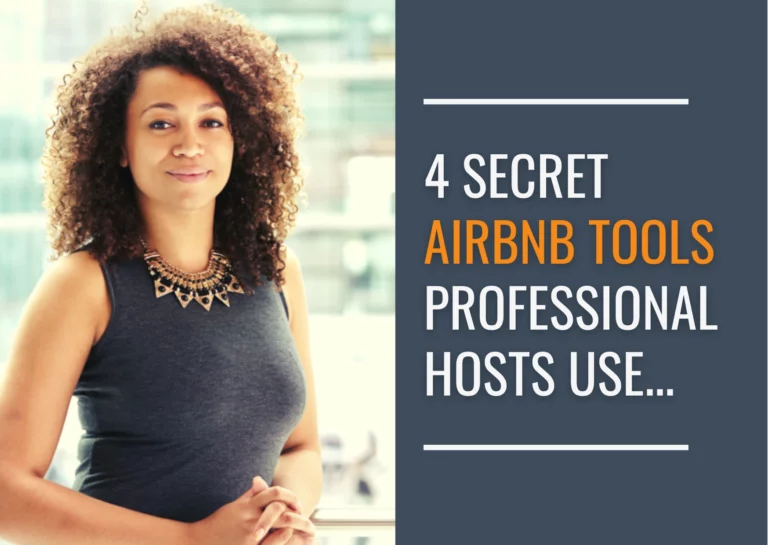Key Elements of a Successful Sublease Agreement: Sublessor vs. Sublessee

Navigating the realm of subleasing can be tricky, but a well-crafted agreement makes all the difference. Our guide, “Key Elements of a Successful Sublease Agreement: Sublessor vs. Sublessee,” simplifies this complex process by pinpointing the crucial elements that protect both parties involved. With clear terms and transparent conditions, your sublease journey is set for success. Don’t gamble with your property or your peace of mind—invest in our expertly designed Sublease Agreement Template today. Tailored to safeguard both Sublessor and Sublessee, this comprehensive template is the go-to resource for a legally sound, mutually beneficial sublease. From rent collection to maintenance responsibilities, we’ve got you covered. Secure your copy now and streamline your subleasing process! SAMPLE – SUBLEASE AGREEMENT BETWEEN SUBLESSOR AND SUBLESSEE This Agreement is made and entered into on ____________ [Date], between: Sublessor: Name: ___________________________ Address: ___________________________ Phone: ___________________________ Email: ___________________________ AND Sublessee: Name: ___________________________ Address: ___________________________ Phone: ___________________________ Email: ___________________________ Purpose: This Sublease Agreement (“Agreement”) is intended to govern the terms and conditions by which the Sublessor will lease certain residential property to the Sublessee. Both parties agree to abide by the terms set forth herein. Property and Lease Terms Property Address: Address: ___________________________________________________ City: ___________________________ State: ___________________________ Zip: ___________________________ Lease Term: This Sublease Agreement shall begin on ________________ [Start Date] and shall end on ________________ [End Date]. Security Deposit: A security deposit of $_________ is required to secure compliance with this Agreement. Rent: The Sublessee agrees to pay a monthly rent of $__________. Payments should be made on the __________ day of each month. Utilities: The following utilities are included in the monthly rent payment: Electricity Water Gas Internet Other: ___________________ Furnishings: The property is provided: Furnished Unfurnished If furnished, the following items are included: ____________________________________________________ Responsibilities and Obligations Sublessor’s Responsibilities: Maintenance: Sublessor is responsible for the general maintenance and upkeep of the common areas and provided utilities. Repairs: Sublessor shall make necessary repairs within __________ days of receiving written notice from Sublessee. Sublessee’s Responsibilities: Cleaning: Sublessee shall maintain the property in a clean and habitable condition. Repairs: Sublessee shall inform Sublessor of any damage or repairs needed, and shall not undertake any repairs without prior written consent of the Sublessor. Rent: Sublessee agrees to pay rent on time and in the manner specified in the “Rent” section of this Agreement. Utilities: Sublessee is responsible for any utilities not covered in the “Utilities” section of this Agreement. Pets: No pets are allowed on the property. Pets are allowed on the property. A pet deposit of $________ is required. Alterations: Sublessee shall not make any alterations to the property, including but not limited to installing aerials, lighting fixtures, dishwashers, washing machines, dryers, or other items without first obtaining written permission from Sublessor. Inspection: Sublessor reserves the right to enter the property for the purposes of inspection, repair, maintenance, and emergency. Termination and Renewal Termination by Sublessor: Sublessor may terminate this agreement with a written notice at least __________ days prior to the termination date. Grounds for immediate termination may include but are not limited to violation of any part of this agreement, including failure to pay rent or violation of any laws. Termination by Sublessee: Sublessee may terminate this agreement with a written notice at least __________ days prior to the termination date. A termination fee of $__________ will apply if Sublessee terminates the agreement before the term ends, except in the case of military deployment, domestic violence, or other legally protected reasons. Renewal: This Agreement will automatically renew for subsequent periods of the same length as the initial term unless either party provides written notice of termination at least __________ days before the end-date of the current period. Security Deposit Return: The security deposit will be returned within __________ days following the termination of this Agreement, minus any costs for necessary repairs or rent owed. Maintenance and Repairs Sublessee Responsibilities: Sublessee shall, at their own expense, keep and maintain the premises in a clean and sanitary condition. Sublessor Responsibilities: Sublessor shall be responsible for repairs to the property structure, plumbing, electrical, and major appliances, unless damage is due to the negligence or willful misconduct of Sublessee. Notice for Repairs: Sublessee shall provide written notice to Sublessor for any repairs that are needed, allowing __________ days for completion of said repairs. Emergency Repairs: In the event of an emergency that risks the safety of persons or property, Sublessee may arrange for immediate repairs and will notify the Sublessor as soon as reasonably possible. Inspection: Sublessor reserves the right to enter the premises for the purposes of inspection, repair, maintenance, and emergency with a __________ hour notice to Sublessee, except in cases of emergency where no notice is required. Utilities and Amenities Included Utilities: The utilities for the premises are as follows: __________, __________, __________. These utilities are included in the monthly rent and will be paid by the Sublessor. Excluded Utilities: Any utilities not mentioned above are the sole responsibility of the Sublessee and must be paid separately. Amenities: Amenities provided on the property include: __________, __________, __________. Internet and Cable: Internet and cable services are [included/not included] in the rent. If not included, Sublessee is responsible for arranging and paying for these services. Trash and Recycling: Trash and recycling are to be disposed of by the Sublessee in the appropriate bins provided and in compliance with local disposal and recycling regulations. Governing Law and Entire Agreement Governing Law: This Sublease Agreement shall be governed, construed, and interpreted by, through, and under the Laws of the State of ________. Entire Agreement: This Sublease Agreement constitutes the entire agreement between the parties relating to the subject matter herein. Any modifications or amendments must be in writing and signed by both parties. Severability: If any provision of this Sublease Agreement is found to be invalid or unenforceable, the remaining provisions will continue to be valid and enforceable to the fullest extent permitted by law. Conflict with Original Lease: In the event of any conflict between the provisions of this Sublease
Short-Term Rental Agreement/Lease Addendum: Key Components and Considerations
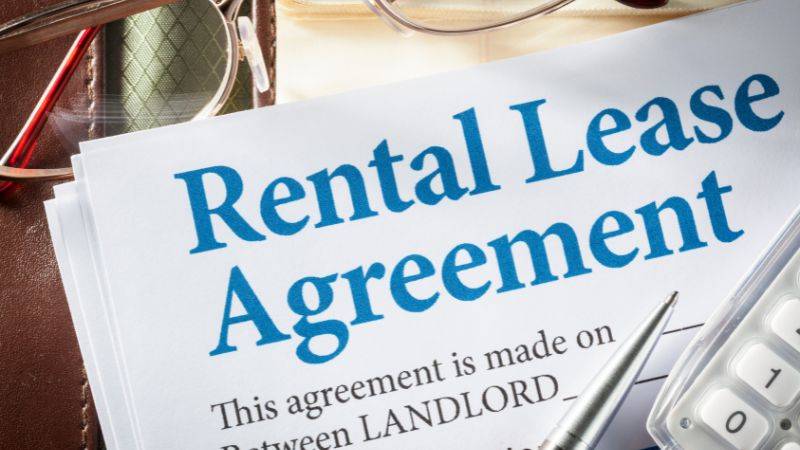
Navigating the world of short-term rentals can be complex, whether you’re a property manager or a landlord. That’s why having a formal Short-Term Rental Agreement/Lease Addendum is essential. This document serves as a comprehensive guide to clarify responsibilities and expectations, ensuring a smooth rental experience for all parties involved. Below you’ll find a sample addendum that can be tailored to fit your specific needs and local regulations. A downloadable version is also available for your convenience. SAMPLE-Short-Term Rental Agreement/Lease Addendum This Agreement is made and entered into this _____ day of ________, 20, by and between [Host’s Full Name], residing at [Host’s Address], hereinafter referred to as the “Host,” and [Guest’s Full Name], hereinafter referred to as the “Guest.” Property Address: Purpose: This Agreement aims to outline the terms and conditions under which the Guest will temporarily rent the property listed above from the Host through the _____ platform. In this template, blanks are left where specifics should be filled in, such as names, addresses, and other details. The seller can easily replace these with their information, making it tailored to their unique needs. Duration of the Stay Check-in Date and Time: The Guest’s stay at the property will commence on the _____ day of ________, 20, with check-in scheduled for no earlier than _______ (Time) in the time zone of the property. Check-out Date and Time: The Guest’s stay will conclude on the _____ day of ________, 20, with check-out to be completed no later than _______ (Time) in the time zone of the property. Payment Terms Rental Rate: The Guest agrees to pay a total rental rate of $_________ (USD or specified currency), broken down as follows: Nightly Rate: $_________ per night Number of Nights: _________ nights Total Basic Rental Cost: $_________ Additional Fees: Cleaning Fee: $_________ Service Fee: $_________ (if applicable) Other Fees: $_________ (specify, if any) Total Cost of Stay: The total cost of the Guest’s stay, inclusive of all fees, shall be $_________. Payment Schedule: Initial Deposit: $_________ (due upon booking) Remaining Balance: $_________ (due by _________) Security Deposit: A security deposit of $_________ is required to cover any potential damages, payable by the Guest by _________ (Date). House Rules and Regulations Quiet Hours: Quiet hours are from _______ PM to _______ AM. No loud music, disruptive behaviour, or violations of local noise ordinances are permitted during these hours. Pets: No pets are allowed on the property without prior written consent from the Host. If consent is given, a separate pet deposit of $_________ is required. Smoking: Smoking is not allowed inside the property. Smoking areas are designated at ____________ (if applicable). Occupancy: The property is to be occupied by no more than _______ persons at a time unless prior written consent is provided by the Host. Parking: _______ (Number of) parking space(s) are available. Vehicles are to be parked in the designated areas only. Cleaning: Guests are required to maintain a reasonable level of cleanliness during their stay. A cleaning fee of $_________ will be charged for additional cleaning services beyond the standard cleaning included in the rental rate. Security: Always lock all doors and windows when leaving the property. The Host is not responsible for the loss of personal belongings or valuables. Cancellation and Refunds Cancellation by Guest: More than _______ days before check-in: Full refund minus a cancellation fee of $_________ Between _______ and _______ days before check-in: _______% refund Less than _______ days before check-in: No refund Cancellation by Host: If the Host needs to cancel the booking for any unforeseen circumstances, a full refund will be issued to the Guest, along with an optional discount for a future stay. Early Departure: No refunds will be provided for early departures or for reduced numbers of guests after the booking is confirmed. Force Majeure: Neither party will be held liable for cancellations or changes in the booking due to events beyond their reasonable control, such as natural disasters, pandemics, or governmental actions. Refund Process: Refunds, where applicable, will be processed within _______ business days through the original payment method. Liability and Damages Security Deposit: A security deposit of $_________ is required to cover any potential damages, losses, or additional cleaning. This deposit will be refunded within _______ business days after the check-out date, minus any deductions for repairs or replacements. Damages: Guests are responsible for any damages to the property, furnishings, or equipment caused during their stay. All damages must be reported to the Host immediately. Costs for repairs or replacements will be deducted from the security deposit. Injury and Personal Liability: Neither the Host nor any associated parties shall be held liable for any accidents, injuries, or illnesses that occur while on the premises. The Guest acknowledges that they use the property and its amenities at their own risk. Insurance: Guests are strongly advised to secure appropriate travel and health insurance. The Host is not responsible for any losses or damages to the personal belongings or valuables of the Guest. Indemnification: The Guest agrees to indemnify and hold harmless the Host from and against any liabilities, damages, losses, claims, costs, and expenses arising from the Guest’s use of the property or violation of any terms of this agreement. Additional Terms and Conditions Pets: No pets are allowed on the property without prior written approval from the Host. If approved, a non-refundable pet fee of $________ will be charged. Smoking: Smoking is not permitted within the property. Failure to comply will result in a $________ fine and may lead to immediate eviction without refund. Events/Parties: Events, parties, or gatherings of more than _______ people are not allowed without prior written approval from the Host. Check-in/Check-out: Check-in time is after _______ PM and check-out is by _______ AM. Early check-in or late check-out must be approved by the Host and may incur additional charges. House Rules: The Guest agrees to comply with all house rules as stated by the Host, including rules embedded within this agreement, signage at the property, and any
How To Change Currency On Airbnb Website & Phone App
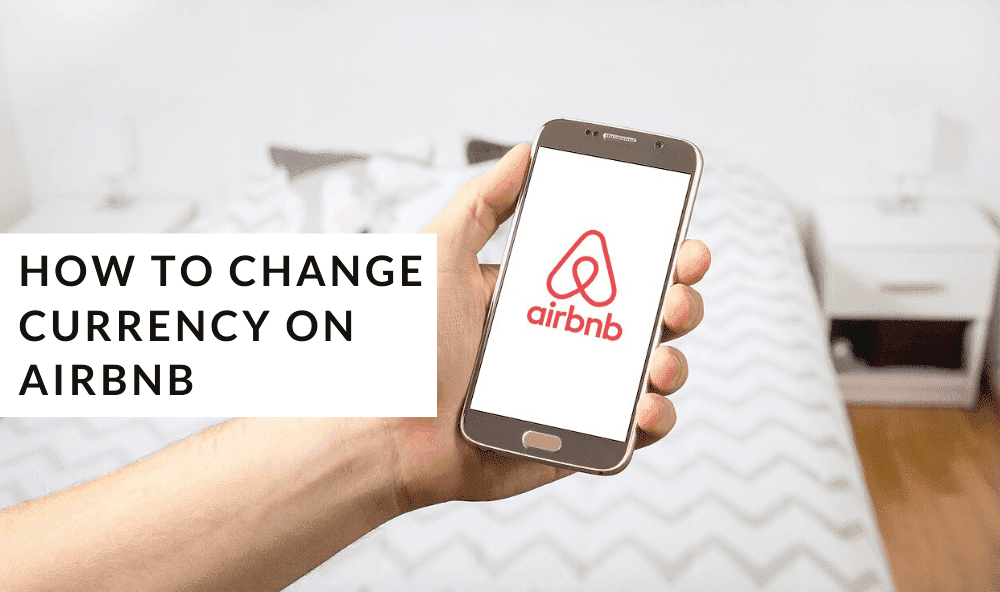
How to change currency on Airbnb? It can be be very confusing when suddenly you see a different currency on your profile and there is no visible option to change the currency. Whether you are travelling or hosting on Airbnb, default currency on your profile can change automatically based on your geographic location and if you are not careful enough, you may end up booking in different currency which can be an expensive mistake. 1. Change currency on phone app2. Change change currency on the website3. Shortcut: Change currency in three clicks 1. How To Change Airbnb Currency On Phone: https://youtu.be/TzZnlFszZ6g STEP 1: On home screen of your Airbnb phone app, click on ‘Profile‘ at the bottom right corner: STEP 2: Choose ‘Payments and Payouts‘ option on the next screen Step 3: Choose the last option ‘Currency‘ in the list of options on the next screen Step 4: Choose the currency you want to change to Step 5: Don’t forget to click ‘Save‘ and that should change it to your chosen currency. 2. How to Change Currency On Airbnb Website: Step 1: Click on your Profile picture on the top right corner of the screen Step 2: Choose ‘Account‘ from the drop down that follows Step 3: Choose ‘Global Preferences‘ on the next screen Step 4: Choose ‘Edit‘ in front of Preferred Currency option. Step 5: Choose the right currency from the dropdown Step : Don’t forget to save in the end 3: Shortcut: Change Currency In Three Clicks Airbnb likes to keep moving things around for users, they have recently added another option to change the currency and it involves just three clicks. Step1 : Click on the your profile picture at the top right corner of the screen Step 2: And just choose the currency you want to switch to on the pop screen next. If you any issues, get in touch with Airbnb and they should be able to help you resolve it quiet swiftly.
How to Cater to Business Travelers: Taking Your Airbnb to the Next Level

As an Airbnb host, you’re always looking for ways to attract more guests and provide exceptional experiences. One market that offers significant potential is business travelers. These guests are often looking for comfortable, convenient, and well-equipped places to stay during their business trips. In this article, we’ll explore how you can cater to business travelers and take your Airbnb to the next level. 1. Understanding Business Travelers Business travelers have unique needs and preferences compared to leisure travelers. They often value convenience, comfort, and connectivity above all else. They may need to work from your property, so a quiet space with a desk and high-speed internet is essential. Understanding these needs is the first step in catering to business travelers. Moreover, business travelers often have a tight schedule. They appreciate hosts who can provide quick responses and accommodate their needs, such as early check-in or late check-out. They also value clear and detailed communication about the property and its amenities. 2. Providing the Right Amenities To attract business travelers, it’s important to offer the amenities they value. This includes a reliable and fast Wi-Fi connection, a dedicated workspace, and self-check-in and check-out options. Other appreciated amenities include ironing facilities, a hairdryer, and basic kitchen appliances for those who prefer to cook their meals. In addition to these basic amenities, consider providing amenities that can make their work easier and their stay more comfortable. This could include a comfortable office chair, a printer, or even a second monitor. Also, consider the comfort of the bed and the quality of the linens, as a good night’s sleep is crucial for business travelers. 3. Creating a Conducive Work Environment Creating a conducive work environment involves more than just providing a desk and chair. Consider the lighting in your workspace, the comfort of the chair, and the availability of power outlets. You could also provide extras like a monitor, keyboard, and mouse, or office supplies like pens and notepads. Furthermore, consider the overall environment of your property. Is it quiet enough for work calls? Is there a space where they can take a break and relax? These small details can make a big difference in the experience of your business traveler guests. 4. Offering Flexible Check-In and Check-Out Times Business travelers often have unpredictable schedules, so offering flexible check-in and check-out times can be a big advantage. This can be easily managed with a smart lock or lockbox. Also, consider offering self-check-in and check-out, so guests can arrive and leave at their convenience. In addition to flexibility, communication is key. Make sure to provide clear instructions for check-in and check-out, and be available to answer any questions your guests might have. This can help ensure a smooth and stress-free experience for your business traveler guests. 5. Showcasing Your Property’s Business-Friendly Features When listing your property on Airbnb, make sure to highlight the features that are beneficial for business travelers. This includes not only the amenities but also the location. If your property is close to business centers, conference venues, or public transportation, be sure to mention it in your listing. Also, consider joining Airbnb’s work collection, a selection of homes that have essential amenities for business travelers. This can make your property more visible to business travelers and show that you’re committed to catering to their needs. STR Specialist’s Resources At STR Specialist, we offer a range of training programs that can help you navigate the challenges of Airbnb hosting, including catering to business travelers. Our programs, such as “More Bookings,” “95% Automation,” and “Optimized Comms,” provide practical tips and strategies to boost your bookings, automate your operations, and optimize your communications with guests. Catering to business travelers can take your Airbnb to the next level. By understanding their needs, providing the right amenities, creating a conducive work environment, offering flexible check-in and check-out times, and showcasing your property’s business-friendly features, you can attract more business travelers and provide them with exceptional experiences. At STR Specialist, we’re here to support you on your hosting journey with resources and training programs designed to help you succeed. FAQs 1. Why should I consider catering to business travelers for my Airbnb? Catering to business travelers can open up a lucrative market segment for your Airbnb. Business travelers often stay for longer periods and are willing to pay a premium for comfortable and well-equipped accommodations. Attracting them can lead to increased bookings and potentially higher revenue. 2. What amenities do business travelers value the most? Business travelers value amenities that support their work needs and enhance their comfort. These include fast and reliable Wi-Fi, a dedicated workspace with a desk, self-check-in and check-out options, ironing facilities, and basic kitchen appliances. Additionally, offering extras like an office chair, printer, or additional monitor can be appreciated. 3. How can I create a conducive work environment for business travelers? Creating a conducive work environment involves considering the workspace’s lighting, comfort of the chair, availability of power outlets, and extras like a monitor and office supplies. It’s also essential to ensure a quiet and peaceful atmosphere for work calls and a space where guests can take breaks and relax. 4. Is offering flexible check-in and check-out times necessary for business travelers? Yes, offering flexible check-in and check-out times is highly beneficial for business travelers who often have unpredictable schedules due to meetings and work commitments. Utilizing smart locks or lockboxes can enable self-check-in and check-out, making the process more convenient for guests. 5. How can I showcase my property’s business-friendly features on Airbnb? To showcase your property as business-friendly, highlight the amenities and location in your listing. Mention the availability of essential amenities for work and the proximity to business centers, conference venues, or public transportation. Consider joining Airbnb’s work collection to increase visibility among business travelers. 6. How can STR Specialist’s resources help me with catering to business travelers? STR Specialist offers various training programs designed to support Airbnb hosts, including those catering to business travelers. Programs like “More Bookings,” “95% Automation,” and “Optimized
Mastering the Game: A Proven Strategy for Managing Multiple Airbnb Properties

Running multiple Airbnb properties is no small feat. It’s a complex jigsaw puzzle that requires you to juggle various tasks, from guest communication and property maintenance to strategic pricing and regulatory compliance. As an Airbnb host who has successfully managed multiple properties while maintaining a full-time job, I’ve cracked the code on how to navigate this labyrinth efficiently. In this article, I’ll share my proven strategy and insider tips to help you master the art of managing multiple Airbnb properties. 1. The Power of Automation: Work Smarter, Not Harder In the world of Airbnb hosting, automation is your best friend. It’s about working smarter, not harder. 1.1. Automating Guest Communication Automating repetitive tasks such as guest communication can save you a significant amount of time. With the right tools, you can ensure that your guests receive timely and consistent communication, enhancing their experience and freeing up your time. 1.2. Streamlining Booking Management Automating booking management can help you keep track of your reservations, prevent double bookings, and ensure that your calendar is always up-to-date. 1.3. Scheduling Cleaning and Maintenance Automation can also extend to scheduling cleaning and maintenance tasks. This ensures that your properties are always in top condition, ready to welcome your next guest. In my “95% Automation” training program, I delve into the state-of-the-art tools that can help you automate these tasks and streamline your operations. 2. Building Your Dream Team: The Key to Scaling Up As you expand your Airbnb empire, you’ll need a reliable team to help you manage your properties. 2.1. Hiring the Right People This could include cleaners, property managers, and maintenance staff. But how do you find trustworthy people? I’ll share my strategies for finding and hiring the right people who can help you scale up your operations. 2.2. Managing Your Team Effectively Once you’ve built your team, managing them effectively is key. This involves clear communication, setting expectations, and providing feedback. 2.3. Building Strong Relationships with Your Team Building strong relationships with your team can lead to better performance and a more harmonious working environment. I’ll share tips on how to build and maintain these relationships. 3. The Art of Communication: Winning Hearts One Message at a Time Effective communication is the backbone of successful Airbnb hosting. 3.1. Responding to Inquiries Promptly and Professionally It’s about more than just responding to inquiries. It’s about doing so in a way that is prompt, professional, and friendly. 3.2. Managing Guest Expectations Managing guest expectations is key to preventing misunderstandings and ensuring smooth operations. This involves clear communication about your property, the amenities you offer, and your house rules. 3.3. Resolving Issues Proactively Resolving issues before they escalate can lead to better guest satisfaction and fewer negative reviews. I’ll share my strategies for proactive issue resolution. In my “Optimized Comms” training program, I share my proven communication strategy that has helped me wow my guests, one after the other. 4. Staying Ahead of the Curve: Navigating Regulatory Landscapes When you’re managing multiple properties, staying on top of local regulations and Airbnb’s policies is crucial. 4.1. Understanding Local Zoning Laws Local zoning laws can affect where you can host and what kind of hosting you can do. I’ll share tips on how to navigate these laws. 4.2. Complying with Licensing Requirements Many cities require Airbnb hosts to have a license or permit. I’ll discuss how to find out if this applies to you and how to comply. 4.3. Managing Tax Obligations Understanding your tax obligations can help you avoid potential legal issues and financial penalties. I’ll share resources to help you navigate this complex area. 5. The Secret Sauce: Creating Outstanding Guest Experiences At the end of the day, Airbnb hosting is all about creating outstanding guest experiences. 5.1. Personalizing Your Guest’s Stay From personalized welcome baskets to local tips and recommendations, I’ll share my secrets for creating memorable guest experiences that lead to glowing reviews and repeat bookings. 5.2. Providing Local Tips and Recommendations Providing your guests with local tips and recommendations can enhance their stay and make them feel like locals. I’ll share how to find these local gems and how to share them with your guests. 5.3. Going the Extra Mile Going the extra mile can make your guests feel special and appreciated. I’ll share examples of how I’ve done this in my own hosting. 6. STR Specialist: Your Partner in Success At STR Specialist, I offer a range of training programs designed to help you navigate the challenges of Airbnb hosting. 6.1. Training Programs Tailored to Your Needs Based on my own experiences and successes, these programs provide practical tips and strategies to help you manage multiple properties efficiently, boost your bookings, and create outstanding guest experiences. 6.2. Practical Tips and Strategies for Success Whether you’re a seasoned host looking to scale up or a newbie just starting out, STR Specialist is here to support you on your hosting journey. 6.3. A Community of Like-Minded Hosts Join a community of like-minded hosts who are all on the same journey. Share tips, ask questions, and learn from each other. Managing multiple Airbnb properties can be a challenging endeavor, but with the right strategies and resources, it’s entirely achievable. By leveraging automation, building a reliable team, mastering the art of communication, staying on top of regulations, and focusing on creating outstanding guest experiences, you can turn your Airbnb venture into a thriving business. At STR Specialist, we’re here to help you make that happen. You may also like: Top 13 Most Desired Airbnb Properties of 2023: Featuring an $18 Million Residence The Role of Local Partnerships in Enhancing Your Airbnb Guest Experience
Top 13 Most Desired Airbnb Properties of 2023: Featuring an $18 Million Residence

Based on user interactions, reviews, and the uniqueness of listings, these homes emerged as leaders from amongst millions, beautifully exemplifying our platform’s diverse range. Airbnb, in its constant endeavor to elevate travel experiences, is proud to present the culmination of extensive research – an enticing collection of the world’s most sought-after properties for 2023. 1. Gatlinburg, Tennessee – Whispering Creek Cabin: Nestled in the heart of the Smoky Mountains, this cabin is an epitome of an idyllic retreat. A union of timeless rustic charm with contemporary elegance, its interiors showcase polished wooden aesthetics and modern-day comforts. Wide windows act as frames to the picturesque outdoors, drawing in the verdant scenery and tranquil sounds of the surrounding forest. Perfect for both adventure seekers and those in search of serenity, the cabin offers proximal trails for enthusiastic hikers, while its cozy corners are perfect for introspective moments. A stay here is not just about the place but the immersion into the wild essence of Tennessee. 2. Cape Town, South Africa – Oceanview Elegance: Elevated over the rugged coastline of Cape Town, this luxurious dwelling boasts magnificent panoramas of the azure Hout Bay Beach. Beyond just vistas, the residence tells a story of sophistication intertwined with local culture. Its interiors elegantly juxtapose modern architecture with elements of traditional African artistry. Spacious balconies beckon guests to enjoy sundowners, gazing upon the golden hues of sunset. The infinity pool, giving an illusion of merging with the ocean, adds to the ethereal experience. This property is a harmonious blend of comfort, culture, and unparalleled sea views, offering guests a piece of South African paradise. 3. Joshua Tree, Calif – The Architectural Wonder: Rising majestically amidst the arid landscape of Joshua Tree, this 22-story building is a testament to innovative design. Conceived by the brilliant mind of Chris Hanley, each floor of this edifice surprises with its unique thematic concept, ranging from zen gardens to modern art installations. The exterior’s reflective surfaces capture the shifting moods of the desert, from dawn’s gentle glow to twilight’s fiery canvas. With floor-to-ceiling windows in strategic spots, guests can indulge in panoramic views, making it a sensory feast of sight and design. This structure challenges the conventional, offering an unparalleled escape into architectural marvel and desert magic. 4. Joshua Tree, Calif – Casa Coyotes: A symbol of desert luxury, Casa Coyotes stands proud near the iconic Joshua Tree National Park. Paying homage to its surroundings, the villa incorporates indigenous designs and materials, ensuring it complements rather than contrasts its environment. Inside, guests are welcomed by opulent rooms adorned with curated art pieces and contemporary amenities. The property also offers expansive outdoor lounging areas, perfect for stargazing or simply soaking in the tranquility of the desert. With every detail meticulously crafted, from its outdoor spa to the succulent gardens, it’s more than just a stay—it’s a holistic Joshua Tree experience. 5. Varen, France – Historic Le Moulin Vert: The Le Moulin Vert is a living relic, a 13th-century mill nestled in the lush French countryside. Its storied stone walls echo with centuries of history, making it a portal to medieval Europe. A stroll around reveals meticulously manicured gardens, the sound of water serenading from the nearby river, adding an enchanting soundtrack. Inside, the juxtaposition is startling yet seamless: modern amenities cuddle up to ancient architecture. Ancient wooden beams, vintage artifacts, and contemporary furnishings harmonize, creating a rich tapestry of old and new. A stay here is an evocative journey, a rare chance to live within walls that have stood the test of time while enjoying the comforts of today 6. Warren, Vermont – Green Mountain Glasshouse: Standing as a tribute to contemporary design, this residence seamlessly integrates with the breathtaking Vermont scenery. Its walls, largely transparent, provide guests with a constantly evolving mural of the Green Mountains. As seasons change, so does the panorama—from verdant summers to snowy winter wonderlands. The interior design champions Scandinavian minimalism, emphasizing functionality and simplicity, ensuring that nature remains the dominant artwork. Spaces within are curated for relaxation, reflection, and rejuvenation. This abode is perfect for those who seek an intimate embrace with nature without compromising on luxury. 7. Blue Ridge, Georgia – Highlands Recreational Cabin: Beyond a place of rest, this cabin, located in Highlands Hideaway, is a celebration of leisure and recreation. Its design pays homage to traditional Georgian cabins—wooden, warm, and inviting. Guests are spoiled for choice with a myriad of recreational activities, both indoor and out. From gaming arenas to adventure trails, every guest, regardless of age, finds their niche of fun. Evening gatherings around a roaring bonfire, sharing stories and making memories, become the highlight of the stay. It’s an embodiment of both relaxation and thrill, ensuring a diverse holiday experience. 8. Grass Valley, Calif – Serene A-frame Abode: Hidden amidst nature’s bounty, this A-frame house promises unmatched tranquillity. Designed with a keen understanding of its environment, its expansive decks and patios offer pristine views of the encompassing landscapes. The interiors, bathed in warm hues with elegant furnishings, are a sanctuary of comfort and peace. The harmonious confluence of design and ambience ensures that guests experience both luxury and leisure in equal measure. It’s an ideal spot for those looking to escape the hustle and reconnect with nature. 9. Broad Cove, Nova Scotia, Canada – Panoramic Tower: A testament to avant-garde architecture, this tower stands as a sentinel overlooking the rugged coastlines of Nova Scotia. Its unique spiral design ensures an unbroken view of the surrounding splendors. Guests are treated to breathtaking 360-degree panoramas, capturing the raw beauty of the land and seascape. Interiors, though modern, incorporate elements inspired by local culture and materials. It’s a dwelling that not only offers visual delights but also redefines luxury living amidst nature. 10. El Prado, New Mexico – Desert Skyline Retreat: Perched atop a plateau, this retreat is an ode to the deserts of New Mexico. Its design, with terracotta tones and indigenous art, seamlessly integrates with the environment. Expansive windows and outdoor
Beginner’s Manual for Hosting on Booking.com
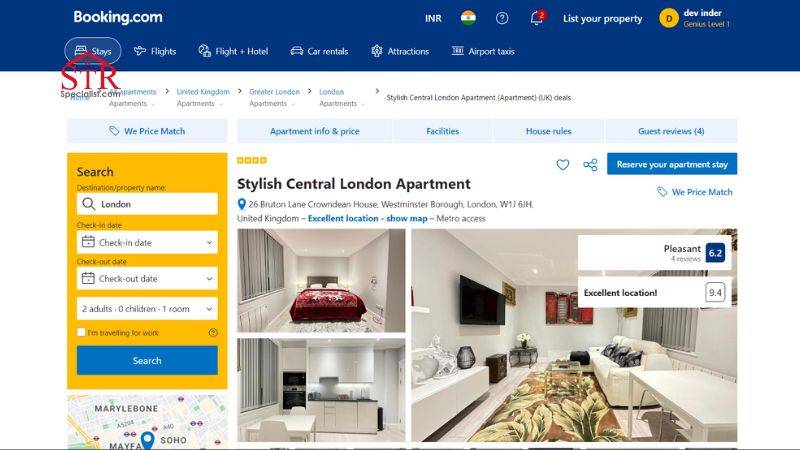
Have you considered the untapped potential of listing your vacation rental property on Booking.com? In this article, we’ll guide you through the benefits of embracing this platform, highlight its key distinctions from Airbnb, and provide a step-by-step process to help you successfully list your property. Get ready for a transformational journey! Why Booking.com Deserves Your Attention? With a staggering presence in over 226 countries and territories, Booking.com reigns as one of the world’s largest accommodation booking platforms. Boasting a remarkable 28 million listings, this platform attracts a vast community of travelers, resulting in over 1.5 million nightly bookings. Its availability in 43+ languages has propelled it to become the most-visited travel site globally. Unlike other platforms, Booking.com goes beyond vacation rentals, offering an extensive range of options, including hotels, vacation packages, flights, and transportation solutions. Diversify Your Audience, Boost Your Revenue By joining Booking.com, you unlock unparalleled exposure to a significantly larger audience, allowing your vacation rental property to shine amidst the competition. What sets Booking.com apart is the freedom it grants you as a property owner or host. You have the power to establish your own prices and policies, enabling you to optimize revenue and occupancy rates. Countless Airbnb hosts have embraced Booking.com, witnessing a substantial increase in their daily earnings and occupancy levels. How Booking.com Works: Unveiling the Benefits Joining Booking.com is a breeze, especially if you’re already an experienced Airbnb host. Let’s explore the benefits that await you: Flexibility: List any type of property free of charge, regardless of its size or style. Time-saving: Effortlessly import relevant details from your existing listings, saving you valuable time during the setup process. Tailor-made house rules: Set your own house rules, ensuring guests agree to them before making a booking. Multilingual support: Enjoy round-the-clock assistance in over 43 languages, providing seamless communication with guests. Property protection: Secure your investment by setting up a damage deposit, offering peace of mind and protecting your property. Enhanced communication: Guests can easily connect with you using Booking.com’s messaging system prior to confirming their reservation. Selective guest vetting: Establish specific criteria that guests must meet to book your property, such as verified phone numbers and addresses. Guest misconduct reporting: In case of a negative guest experience, you can report any misconduct to the Booking.com team and even block problematic guests. Extranet access: Benefit from the administrative dashboard, known as the Extranet, where you can manage your property effectively. On-the-go management: Utilize the Pulse mobile app to effortlessly handle reservations, check availability, and promptly respond to guest messages. Seamless integration: Connect your Booking.com account to a channel manager for streamlined management across multiple platforms. Comprehensive support: While this guide covers essential information, Booking.com offers an online Help Center with step-by-step guides and best practice tips to assist you further. How to Get Started on Booking.com? Before diving into the registration process, ensure your property is optimized for short-term rentals. Take a moment to review our guide, which will help you avoid costly mistakes and maximize your success. Now, let’s begin: Registration: Sign up on the platform by providing your first and last name, as well as your email address. Configure your personalized Extranet login and password. Prepare Property Details: Prior to listing your property, gather essential information such as the complete address, a comprehensive list of facilities and amenities, types of rooms available, and their availability status. Showcase Your Property: While at least one high-quality photo is mandatory, we recommend adding multiple captivating images that highlight your property’s unique features. Payments: Provide your preferred payment details to ensure a seamless booking process for your guests. Create Your Listing: Construct your listing by incorporating the gathered information. Once completed, submit it for approval. The Booking.com team will review your submission to ensure all required information is provided for account activation. Fine-tune Your Listing: Upon receiving the confirmation email, access the Extranet and customize your property’s availability calendar, set prices, and add any additional details or photos as required. Once satisfied, set your property to live on Booking.com. Remember, you can update your registration details at any time to keep your listing current and enticing. Unveiling the Booking.com Extranet The Extranet serves as your gateway to a wealth of information pertaining to your property. Gain access to policies, payment options, photos, descriptions, room details, rates, and reviews. Additionally, you’ll find a comprehensive record of past and future reservations, providing valuable insights into your property’s performance. Harness the power of the Extranet to set up deals and leverage analytics for enhanced decision-making. Understanding Booking.com Fees Listing your property on Booking.com incurs no upfront costs. Instead, a commission is charged for each successful booking. During the registration process, the commission percentage will be displayed at the Agreement step, varying between 10% and 25% depending on the country. The global commission rate average is 15%, and rest assured, there are no hidden costs. You won’t be charged a commission automatically for every booking. Instead, Booking.com will send you a monthly invoice via email during the first week of each month. Invoices can also be accessed in PDF format through the Extranet’s Finance tab. Payment is due within 14 days of the invoice date. For hosts using Direct Debit as their payment method, commissions will be deducted automatically from their accounts. Commissions are only applicable to confirmed stays after guests have checked out and paid. If a guest fails to arrive, and you choose to waive the fee, no commission is payable. Be sure to mark the reservation as a no-show on the Extranet or using the Pulse app. It’s important to note that commissions are charged for non-refundable bookings, irrespective of guest stays. Effortless Guest Payments Unlike Airbnb, Booking.com does not always handle guest payments automatically. Depending on your policies, you may need to collect payments from guests yourself. You have the flexibility to determine your preferred payment offers and methods. If you don’t accept credit cards, guests can pay in your local currency upon arrival or departure. For hosts accepting credit
The Role of Local Partnerships in Enhancing Your Airbnb Guest Experience

As an Airbnb host, you’re not just providing a place to stay; you’re offering an experience. One of the most effective ways to enhance this experience is through local partnerships. By collaborating with local businesses and attractions, you can provide your guests with unique experiences that they wouldn’t find anywhere else. In this article, we’ll explore how local partnerships can enhance your Airbnb guest experience and how to form these valuable connections. 1. Understanding the Value of Local Partnerships Local partnerships can add significant value to your Airbnb business. They can help you provide unique experiences, attract more guests, and even generate additional income. Moreover, they can help you contribute to your local economy and build strong relationships within your community. When you partner with local businesses, you’re not just adding value to your Airbnb listing; you’re also supporting the local economy. This can help create a positive image for your Airbnb business in the community and can lead to more local referrals and positive reviews. 2. Types of Local Partnerships There are many types of local partnerships that you can explore. These include partnerships with local restaurants, tour operators, event organizers, artists, and more. The type of partnerships you form should align with your brand and the interests of your target audience. For instance, if your Airbnb property is located in a city known for its food scene, partnering with local restaurants could be a great fit. On the other hand, if your property is near a national park, you might consider partnering with local tour operators who offer hiking or wildlife viewing tours. 3. Forming Local Partnerships Forming local partnerships involves reaching out to local businesses or attractions and proposing a collaboration. This could involve offering special deals or experiences to your guests, promoting each other’s businesses, or even creating joint packages. When reaching out to potential partners, it’s important to clearly communicate the benefits of the partnership. Show them how it can help increase their visibility, reach more customers, and boost their business. 4. Promoting Your Partnerships Once you’ve formed your partnerships, it’s important to promote them. You can do this through your Airbnb listing, social media, and direct communication with your guests. Make sure to highlight the unique experiences and benefits that your partnerships offer. For example, you could mention your partnerships in your Airbnb listing description, share posts about them on your social media accounts, or send information about them in your pre-arrival communications with guests. 5. Maintaining and Evaluating Your Partnerships Maintaining your partnerships involves regular communication, mutual support, and occasional reviews to ensure the partnership is still beneficial for both parties. It’s also important to gather feedback from your guests to understand the value these partnerships are adding to their experience. Regularly check in with your partners to ensure that the partnership is still working well for both of you. Be open to feedback and willing to make changes if needed. Also, ask your guests for feedback on their experiences with your partners. This can help you understand what’s working well and where there might be room for improvement. 6. Case Study: Successful Local Partnerships To give you an idea of what successful local partnerships look like, we’ll share some examples from our own experience as Airbnb Superhosts and the founders of STR Specialist. We’ve formed partnerships with local tour operators to offer unique experiences, local restaurants to offer special deals, and local artists to enhance the decor of our properties. These partnerships have not only added value to our Airbnb listings but have also helped us build strong relationships within our local community. They’ve helped us stand out in a crowded market and have been a big hit with our guests. 7. Utilizing STR Specialist’s Resources At STR Specialist, we offer a range of training programs that can help you navigate the challenges of Airbnb hosting, including forming and managing local partnerships. Our programs, such as “More Bookings,” “95% Automation,” and “Optimized Comms,” provide practical tips and strategies to boost your bookings, automate your operations, and optimize your communications with guests. Whether you’re a new host looking to get started or an experienced host looking to take your Airbnb business to the next level, STR Specialist has the resources to help. We’ve used these strategies to build our own successful Airbnb businesses, and we’re excited to share them with you. 8. Conclusion Local partnerships can significantly enhance your Airbnb guest experience, making your property more attractive to potential guests and setting you apart from your competitors. By forming strategic partnerships with local businesses and attractions, you can offer unique experiences, contribute to your local economy, and create a memorable stay for your guests. At STR Specialist, we’re here to support you on your hosting journey with resources and training programs designed to help you succeed. You may also like: Creating a Unique Brand for Your Airbnb Property Leveraging Social Media to Promote Your Airbnb Property
Creating a Unique Brand for Your Airbnb Property

In the competitive world of Airbnb hosting, standing out from the crowd is crucial. One of the most effective ways to do this is by creating a unique brand for your property. A strong brand can help attract your ideal guests, command higher prices, and turn one-time guests into repeat customers. In this article, we’ll explore how to create a unique brand for your Airbnb property. 1. Understanding Branding Branding is all about creating a distinct and memorable identity. It’s what sets you apart from your competitors and makes your guests choose your property over others. A strong brand goes beyond just a catchy name or a stylish logo; it encompasses the entire guest experience, from the moment they see your listing to the moment they check out. 2. Defining Your Unique Selling Proposition (USP) Your USP is what makes your property unique. It could be your property’s design, its location, the amenities you offer, or even your service as a host. To identify your USP, think about what your guests love most about your property and what sets it apart from others in your area. This will form the foundation of your brand. 3. Identifying Your Target Audience Understanding your target audience is crucial to creating a brand that resonates with them. Are your ideal guests young travelers looking for a budget-friendly stay, or are they luxury seekers looking for a high-end experience? By understanding who your guests are and what they want, you can tailor your brand to meet their needs and expectations. 4. Creating a Visual Identity Your brand’s visual identity includes everything from the design and decor of your property to the style of your photos. A well-defined visual identity can help your listing stand out and attract your target audience. Consider hiring a professional photographer to capture high-quality photos of your property, and think about how you can reflect your brand in the design and decor of your space. 5. Crafting Your Brand Voice Your brand voice is the tone and style of your communication. It should reflect your brand’s personality and resonate with your target audience. Whether it’s friendly and casual or formal and professional, make sure your brand voice is consistent across all your communications, from your listing description to your messages with guests. 6. Delivering a Branded Guest Experience Your brand should extend beyond your listing into the entire guest experience. This includes the way you communicate with guests, the amenities you offer, and any extra touches that reflect your brand. For example, if your brand is all about luxury, you might offer high-end toiletries and a bottle of champagne on arrival. If it’s about local experiences, you might provide a guidebook to your favorite local spots. 7. Consistency is Key Consistency is crucial in branding. Everything from your listing photos to your guest communications should reflect your brand. This not only helps to reinforce your brand identity but also builds trust with your guests. 8. Marketing Your Brand Once you’ve created your brand, it’s time to market it. This could involve promoting your property on social media, partnering with local businesses, or encouraging guests to leave reviews. Remember, every interaction with your guests is an opportunity to reinforce your brand. 9. Evaluating and Evolving Your Brand Finally, remember that branding isn’t a one-time task. It’s important to regularly review your brand to ensure it’s still resonating with your guests and standing out in the market. Don’t be afraid to make adjustments as needed to keep your brand fresh and relevant. Creating a unique brand for your Airbnb property can take time and effort, but the payoff can be significant. With a strong brand, you can attract more guests, command higher prices, and turn one-time guests into loyal customers. So start thinking about what makes your property unique and how you can turn that into a brand that resonates with your guests. FAQs 1. How can I identify my unique selling proposition? Your Unique Selling Proposition (USP) is what sets your Airbnb property apart from others. To identify your USP, consider what makes your property special. Is it the location? The design? The amenities you offer? Or perhaps it’s your exceptional service as a host. Look at your reviews and see what guests appreciate the most about your property. This can give you a clue as to what your USP might be. 2. How do I determine who my target audience is? Determining your target audience involves understanding who your ideal guests are. Consider the type of guests who would most appreciate your property and its USP. Are they families, solo travelers, business travelers, or perhaps couples looking for a romantic getaway? Look at who has been booking your property and who leaves the most positive reviews. You can also consider the attractions near your property and who they appeal to. 3. What are some strategies for creating a visual identity for my Airbnb property? Creating a visual identity for your Airbnb property involves making sure that your property’s aesthetics align with your brand. This includes the design and decor of your property, the style of your photos, and even the color scheme of your listing. You can hire a professional photographer to take high-quality photos that showcase your property’s best features. If your brand has a specific theme or vibe, reflect this in your decor and styling. 4. How can I create a consistent guest experience that reflects my brand? Creating a consistent guest experience involves ensuring that every touchpoint with your guests reflects your brand. This includes your communication before, during, and after their stay, the amenities you offer, and any extra touches that make your property unique. For example, if your brand is all about luxury, you could offer high-end toiletries and a bottle of champagne on arrival. If your brand is about local experiences, you could provide a guidebook to your favorite local spots. 5. What are some effective ways to market my Airbnb brand? Marketing your Airbnb brand
Eco-Friendly Practices for Your Airbnb: A Win-Win for You and the Planet

As an Airbnb Superhost and the founder of STR Specialist, I’ve always been passionate about providing the best experience for my guests while also being mindful of our impact on the environment. In this article, I’ll share some eco-friendly practices that you can implement in your Airbnb property. These practices are not only good for the planet but can also enhance your guests’ experience and potentially increase your bookings. 1. Energy Efficiency 1.1. Energy-Efficient Appliances Investing in energy-efficient appliances can significantly reduce your property’s energy consumption. Look for appliances with Energy Star ratings, which are designed to be more efficient than their conventional counterparts. This not only reduces your carbon footprint but also lowers your utility bills, making it a win-win situation. 1.2. LED Lighting LED lights consume less energy and last longer than traditional incandescent bulbs. They also produce less heat, which can help keep your property cool during the summer months. Switching to LED lighting is a quick and simple change that can save you money and help the environment. 2. Water Conservation 2.1. Low-Flow Fixtures Installing low-flow showerheads and faucets can reduce water usage without compromising your guests’ comfort. You can also install dual-flush toilets, which offer a lower-flush option for liquid waste. These fixtures can significantly reduce your property’s water consumption, leading to lower utility bills and a smaller environmental footprint. 2.2. Water-Efficient Appliances Consider investing in water-efficient appliances, such as dishwashers and washing machines. These appliances use less water than traditional models, helping to conserve this precious resource. Plus, they often perform just as well, if not better, than their less efficient counterparts. 3. Waste Reduction 3.1. Recycling and Composting Provide recycling bins and clear instructions on what can be recycled. If possible, consider setting up a compost bin for food waste. This can significantly reduce the amount of waste your property produces and can even provide nutrient-rich compost for any gardens or plants you may have. 3.2. Reusable Items Instead of providing disposable items, consider offering reusable alternatives. For example, provide cloth napkins and towels instead of paper ones, and offer reusable shopping bags for guests to use. This not only reduces waste but also provides a more luxurious experience for your guests. 4. Eco-Friendly Cleaning Use eco-friendly cleaning products that are biodegradable and free from harmful chemicals. Not only are these products better for the environment, but they can also be safer for you and your guests. Plus, many eco-friendly cleaning products have natural scents like grapefruit, lemongrass, and eucalyptus, which can make your property smell clean and fresh without heavy chemical smells. 5. Local and Sustainable 5.1. Local Products Consider sourcing local products for your property. This could include local artwork, furniture, or even locally roasted coffee for your guests to enjoy. Supporting local businesses reduces the carbon footprint associated with shipping goods and helps support your local economy. 5.2. Sustainable Materials When furnishing and decorating your property, consider using sustainable materials. This could include reclaimed wood, organic cotton linens, or rugs made from natural fibers. These materials are not only more sustainable but can also add a unique and stylish touch to your property. 6. Educate Your Guests Let your guests know about your eco-friendly practices. This can encourage them to participate during their stay and can also enhance your property’s appeal to environmentally conscious travelers. You can do this through a welcome book, signs around your property, or even a message after they book. 7. Utilizing STR Specialist’s Resources At STR Specialist, we offer a range of training programs that can help you navigate the challenges of Airbnb hosting, including implementing eco-friendly practices. Our programs, such as “More Bookings,” “95% Automation,” and “Optimized Comms,” provide practical tips and strategies to boost your bookings, automate your operations, and optimize your communications with guests. 8. Conclusion Implementing eco-friendly practices in your Airbnb property is a win-win situation. It’s good for the planet, can enhance your guests’ experience, and can even save you money in the long run. Plus, with the growing interest in sustainable travel, it can make your property more appealing to potential guests. Remember, every little bit helps, and even small changes can make a big difference. At STR Specialist, we’re here to support you on your eco-friendly hosting journey with resources and training programs designed to help you succeed. You may also like: The Impact of Interior Design on Your Airbnb Ratings How to Handle Disputes with Airbnb Guests: A Comprehensive Guide
How to Handle Disputes with Airbnb Guests: A Comprehensive Guide

As an Airbnb Superhost, I’ve navigated through a myriad of guest interactions. While most of these experiences have been positive, there have been instances where disputes arose. Handling these disputes professionally and effectively is crucial to maintaining a successful Airbnb business. In this article, I’ll share my insights and provide a comprehensive guide on how to handle disputes with Airbnb guests. 1. Prevention is Better Than Cure 1.1. Clear Communication The first step in preventing disputes is clear communication. Ensure your listing accurately represents your property and its amenities. Be transparent about your house rules, check-in and check-out procedures, and any potential inconveniences (like a construction site nearby or a fourth-floor walk-up). Respond promptly and professionally to guest inquiries. This can prevent misunderstandings that might lead to disputes. Also, consider sending a message to your guests after they check-in to ensure everything is as expected. 1.2. Guest Screening Screening your guests can help you avoid potential issues. Review the profiles and previous reviews of prospective guests. If anything raises a red flag, such as negative reviews from previous hosts or incomplete profiles, don’t hesitate to ask for more information or decline the booking. Remember, it’s your right as a host to feel comfortable with the people you’re inviting into your home. 2. Resolving Disputes 2.1. Open Dialogue If a guest raises an issue, the first step is to have an open dialogue. Listen to their concerns, empathize with their situation, and apologize if necessary. Try to find a solution that satisfies both parties. This could be anything from a partial refund to a promise to fix the issue for future guests. Often, disputes can be resolved amicably through effective communication. 2.2. Mediation by Airbnb If you can’t resolve the dispute directly with the guest, you can involve Airbnb. Airbnb’s Resolution Center allows hosts and guests to request money for things like damages. If you can’t reach an agreement, you can ask Airbnb to mediate. They will review all the information provided and make a decision. Remember to document everything, as this can be crucial if Airbnb needs to step in. 3. Handling Negative Reviews 3.1. Responding Professionally Negative reviews can be disheartening, but it’s important to respond professionally. Thank the guest for their feedback, address their concerns, and highlight any changes you plan to make based on their feedback. This shows potential guests that you take feedback seriously and are committed to improving. 3.2. Learning from Feedback Use negative reviews as a learning opportunity. They can highlight areas for improvement that you might have overlooked. For example, if a guest complains about a lack of kitchen utensils, consider investing in a better-equipped kitchen. This not only resolves the issue but also improves your listing for future guests. 4. Legal Considerations In some cases, disputes may involve legal issues, such as damage to your property or a violation of your house rules. It’s important to understand your rights and responsibilities as a host. Consult with a legal professional if necessary. Also, ensure you have a good understanding of Airbnb’s Host Guarantee and Host Protection Insurance, which can provide coverage in certain situations. 5. Utilizing STR Specialist’s Resources At STR Specialist, we offer a range of training programs that can help you navigate the challenges of Airbnb hosting, including handling disputes. Our programs, such as “More Bookings,” “95% Automation,” and “Optimized Comms,” provide practical tips and strategies to boost your bookings, automate your operations, and optimize your communications with guests. 6. Conclusion Handling disputes with Airbnb guests can be challenging, but with clear communication, effective problem-solving, and the right resources, you can navigate these situations successfully. Remember, every challenge is an opportunity for growth. By learning from these experiences, you can continually improve your hosting skills and provide a better experience for your guests. And remember, STR Specialist is here to support you on your hosting journey with resources and training programs designed to help you succeed. FAQs 1. Why is clear communication essential in preventing disputes with Airbnb guests? Clear communication ensures that guests have accurate expectations about the property, amenities, house rules, and other aspects of their stay. By being transparent and responsive, hosts can prevent misunderstandings that might lead to disputes. 2. How can I effectively screen my Airbnb guests? Review the profiles and previous reviews of prospective guests. Look for any red flags, such as negative feedback from other hosts or incomplete profiles. Don’t hesitate to ask potential guests for more information or decline a booking if you feel uneasy. 3. What should I do if a guest raises a concern or issue during their stay? Initiate an open dialogue. Listen to their concerns, empathize, and, if necessary, apologize. Aim to find a mutually satisfactory solution, whether it’s a partial refund, a service adjustment, or a promise to address the issue for future guests. 4. How does Airbnb’s Resolution Center work? The Resolution Center allows hosts and guests to request money for damages or other issues. If both parties can’t agree, they can ask Airbnb to mediate. Airbnb will then review all provided information and make a decision. 5. How should I respond to negative reviews on my Airbnb listing? Respond professionally and calmly. Thank the guest for their feedback, address their specific concerns, and highlight any changes or improvements you plan to make based on their feedback. This approach shows potential guests that you value feedback and are committed to enhancing the guest experience. 6. How can I use negative feedback as a learning opportunity? Analyze the feedback to identify areas of improvement. For instance, if a guest mentions a lack of amenities, consider updating or enhancing those amenities. By addressing and rectifying concerns, you can improve the experience for future guests. 7. What legal protections do I have as an Airbnb host? Airbnb offers the Host Guarantee and Host Protection Insurance, which can provide coverage in specific situations, such as property damage. However, it’s essential to understand the terms and consult with a legal professional regarding any
Understanding Your Legal Obligations as an Airbnb Host
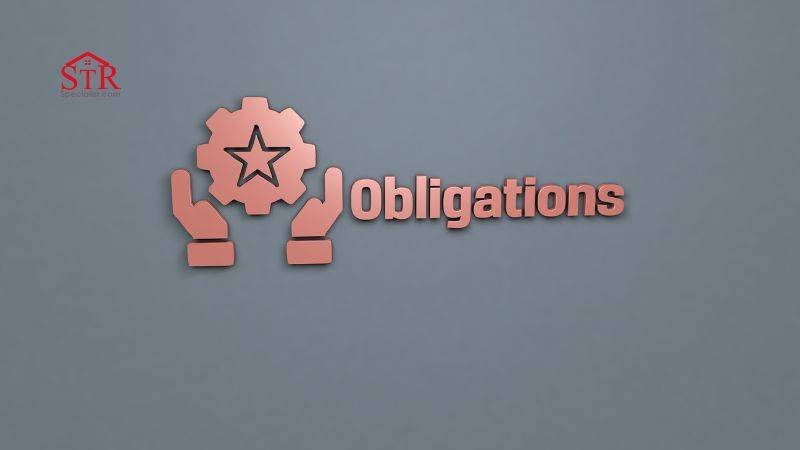
As an Airbnb superhost, you’re not just offering a place to stay; you’re running a business. And like any business, there are legal obligations that you need to understand and comply with to ensure your operation runs smoothly and legally. This article aims to shed light on these obligations, providing you with a comprehensive guide to navigating the legal landscape of Airbnb hosting. 1. Understanding Local Laws and Regulations 1.1. Zoning Laws Zoning laws are local ordinances that regulate how properties in specific geographic zones can be used. These laws can significantly impact your ability to host on Airbnb, as some zones may have restrictions or outright bans on short-term rentals. Violating these laws can result in hefty fines and legal trouble. Therefore, it’s crucial to check with your local government or a legal advisor to understand these laws. If necessary, you may need to apply for a variance or a conditional use permit to legally use your property as a short-term rental. 1.2. Licensing and Permits In addition to zoning laws, many cities require short-term rental operators to obtain a business license or permit before listing their property on platforms like Airbnb. The process to acquire these licenses or permits varies by location and can range from a simple online application to a more complex process involving inspections and public hearings. Failure to obtain the necessary licenses or permits can lead to penalties, including fines and the suspension of your ability to host. 2. Tax Obligations 2.1. Income Tax As an Airbnb host, the income you earn from hosting is typically considered taxable income. This means you’ll need to report your earnings when you file your taxes. It’s essential to keep accurate records of your income, as well as any expenses related to your hosting activity, as these can often be deducted to reduce your taxable income. Consider consulting with a tax professional to ensure you’re meeting your tax obligations and taking advantage of any potential tax benefits. 2.2. Occupancy Tax Occupancy tax, sometimes referred to as hotel tax or tourist tax, is a tax charged on short-term rentals. The specifics of this tax—such as the rate and who is responsible for collecting and remitting it—vary widely by location. In some places, Airbnb collects and remits occupancy taxes on behalf of hosts; in others, it’s the host’s responsibility to collect and remit the tax. It’s important to understand the occupancy tax rules in your location to ensure you’re in compliance. 3. Safety Regulations 3.1. Building and Housing Standards Your property must meet certain safety standards to ensure the well-being of your guests. This can include working smoke and carbon monoxide detectors, a fire extinguisher, and a safe heating system. You may also need to ensure that your property meets specific building codes and housing standards, such as having a certain number of exits or complying with accessibility requirements. Regularly inspect your property to ensure it meets these standards and promptly address any issues that arise. 3.2. Insurance Having adequate insurance coverage is crucial when hosting on Airbnb. While Airbnb provides a Host Guarantee and Host Protection Insurance, these do not replace homeowners’ or renters’ insurance and may not cover all potential damages or liabilities. Check with your insurance provider to ensure your policy covers short-term rentals. If not, you may need to purchase additional coverage. 4. Respect for Your Neighbors 4.1. Noise and Disruption Ensuring your guests respect your neighbors and local noise ordinances is not only good hosting practice—it can also help you avoid legal issues. Excessive noise or disruption can lead to complaints from neighbors, fines from local authorities, or even legal action. Clearly communicate your expectations to your guests regarding noise and consider implementing quiet hours in line with local ordinances. 4.2. Parking If your property includes parking, make sure it doesn’t infringe on your neighbors’ parking spaces or local parking regulations. Improper parking can lead to tension with neighbors, tickets or towing fees, and negative reviews from guests. Provide clear instructions to your guests about where they can and cannot park. 5. Privacy Laws When hosting, it’s important to respect your guests’ privacy. If you plan to use security cameras or other surveillance devices, you must disclose this in your listing. Hidden cameras are not allowed under Airbnb’s rules, and non-disclosure of surveillance devices can lead to penalties, including removal from the platform. 6. Anti-Discrimination Laws Airbnb hosts are required to follow Airbnb’s non-discrimination policy, which is based on federal, state, and local laws. This policy prohibits discrimination based on race, religion, national origin, and other protected classes. Violating this policy can lead to penalties, including removal from the platform. 7. Utilizing STR Specialist’s Resources At STR Specialist, we understand that navigating the legal obligations of Airbnb hosting can be complex. That’s why we offer a range of training programs that cover everything from setting up your Airbnb listing to understanding your legal obligations. Our programs, such as “More Bookings,” “95% Automation,” and “Optimized Comms,” are designed to help you boost your bookings, automate your work, optimize your communications with guests, and earn more 5-star reviews. We also provide tips on how to set the right price for your property using smart pricing techniques and how to constantly earn 5-star reviews on Airbnb. By enrolling in our training programs, you can gain a deeper understanding of your legal obligations as a host, learn how to navigate potential legal issues and ensure that your Airbnb business operates smoothly and legally. Our training programs are designed to be easy to understand and implement, even for those with no legal background. 8. Conclusion Understanding your legal obligations as an Airbnb host is crucial to running a successful and compliant business. By familiarizing yourself with local laws and regulations, tax obligations, and safety regulations, and respecting your neighbor’s and guests’ privacy, you can provide a safe and enjoyable experience for your guests and protect yourself legally. Remember, when in doubt, seek advice from a legal professional or consult the resources available
The Impact of Interior Design on Your Airbnb Ratings
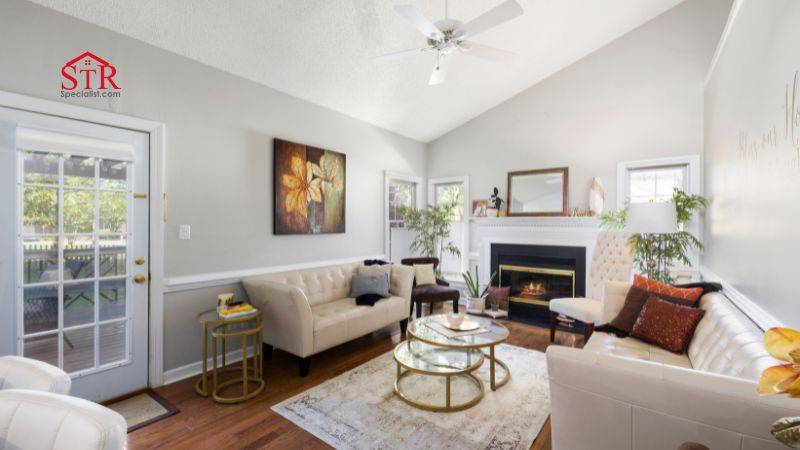
Ever wondered why some Airbnb properties, even with prime locations and competitive rates, struggle to secure bookings? Or why others, in less popular areas, are always booked? The secret often lies in the overlooked aspect of interior design. The aesthetic and functionality of a space significantly influence a guest’s experience and their subsequent review. In this article, we explore the profound impact of interior design on your Airbnb ratings and offer tips to create a space that attracts and delights guests. 1. The Power of First Impressions 1.1. Setting the Tone The moment guests step into your Airbnb, they start forming impressions. A well-designed space can make guests feel welcome and comfortable, setting the tone for a positive stay. On the other hand, a poorly designed space can make guests feel uneasy, no matter how clean or well-located it is. 1.2. Reflecting Your Brand Your interior design also reflects your brand. It tells guests what they can expect from their stay and sets you apart from other listings. A unique and thoughtful design can make your Airbnb memorable, leading to better reviews and more repeat bookings. 2. Key Elements of Interior Design 2.1. Functionality The most important aspect of interior design is functionality. Your space should not only look good but also meet the needs of your guests. This means providing comfortable beds, ample storage, a well-equipped kitchen, and other amenities that guests might need. 2.2. Aesthetics Aesthetics play a crucial role in creating a pleasant environment. Choose a color scheme that is soothing and cohesive. Incorporate elements like artwork, plants, and decorative items to add personality to your space. 2.3. Theme Consider having a theme for your Airbnb. It could be based on your location (a beach theme for a beach house), the architecture of your property (a rustic theme for a cabin), or your personal style. A theme can make your listing stand out and provide a unique experience for your guests. 3. Tips for Improving Your Interior Design 3.1. Declutter A cluttered space can make guests feel overwhelmed. Keep your design simple and clean. Provide enough storage so guests can put away their belongings. 3.2. Invest in Quality Invest in quality furniture and fixtures. They not only look better but also last longer. Guests appreciate quality and are likely to mention it in their reviews. 3.3. Pay Attention to Lighting Lighting can dramatically affect the mood of a space. Make sure your Airbnb has plenty of natural light. Also, provide various lighting options, like ambient lighting for relaxation and task lighting for reading or working. 3.4. Add Personal Touches Adding personal touches can make your Airbnb feel like a home away from home. This could be a handwritten welcome note, a guidebook with your local recommendations, or photos of your city. 4. Utilizing STR Specialist’s Resources At STR Specialist, we understand the importance of interior design in running a successful Airbnb business. That’s why we offer a range of training programs that cover everything from setting up your Airbnb listing to optimizing your operations. Our programs are designed to help you boost your bookings, automate your work, optimize your communications with guests, and earn more 5-star reviews. We also provide tips on how to set the right price for your property using smart pricing techniques and how to constantly earn 5-star reviews on Airbnb. 5. Conclusion Interior design is a powerful tool that can enhance your guests’ experience and boost your Airbnb ratings. By focusing on functionality, aesthetics, and a unique theme, you can create a space that guests love and want to return to. Remember, every detail counts when it comes to interior design. So, take the time to create a space that not only meets your guests’ needs but also delights them at every turn. And don’t forget to check out the resources and training programs available at STR Specialist to help you on your hosting journey. FAQs 1. Why is interior design crucial for Airbnb listings? Interior design significantly influences a guest’s experience, impacting their overall satisfaction and subsequent reviews. A well-designed space can enhance the guest’s stay, making them feel welcome and comfortable, leading to positive reviews and repeat bookings. 2. How does interior design reflect my brand as an Airbnb host? The design of your space communicates to guests what they can expect from their stay. It sets the tone, reflects the quality of service, and differentiates your listing from others. A unique and thoughtful design can make your Airbnb memorable. 3. What are the key elements of interior design I should focus on for my Airbnb? The primary elements include functionality (ensuring the space meets guest needs), aesthetics (creating a visually pleasing environment), and theme (providing a unique experience based on location, property type, or personal style). 4. How can I ensure my Airbnb design is functional for guests? Focus on providing comfortable beds, ample storage, a well-equipped kitchen, and other essential amenities. The space should cater to the guests’ needs, making their stay convenient and enjoyable. 5. What role does lighting play in interior design for Airbnb properties? Lighting can significantly influence the mood and ambiance of a space. Ensure your property has abundant natural light and offer various lighting options, such as ambient lighting for relaxation and task lighting for activities like reading. 6. How can I add a personal touch to my Airbnb property’s design? Personal touches can include handwritten welcome notes, a guidebook with local recommendations, personal photos, or unique decor items that reflect the local culture or your personal style. 7. Why is decluttering important in interior design for Airbnb? A cluttered space can overwhelm guests, making them feel confined and uncomfortable. A clean, organized space allows guests to relax and enjoy their stay. 8. How can STR Specialist’s resources help me improve my Airbnb’s interior design? STR Specialist offers training programs that cover various aspects of Airbnb hosting, including the importance of interior design. These programs provide practical tips and strategies to enhance guest experience, leading to
Leveraging Social Media to Promote Your Airbnb Property

As an advanced Airbnb superhost, you’ve mastered the art of creating a welcoming space, providing top-notch customer service, and managing your listings. But are you making the most of social media to promote your property? If not, you’re missing out on a powerful marketing tool that can help you attract more guests and increase your bookings. In this article, we’ll explore how you can leverage social media to promote your Airbnb property effectively. Why Social Media? Social media platforms like Facebook, Instagram, Twitter, and Pinterest have millions of active users daily. They provide an excellent opportunity to showcase your property to a broad audience and engage with potential guests. Plus, they allow you to build a community around your brand, which can lead to repeat bookings and referrals. Choosing the Right Platform The first step in leveraging social media is choosing the right platform. Each platform has its strengths and target demographics. Instagram, with its focus on visuals, is perfect for showcasing beautiful images of your property. Facebook is great for sharing longer posts, engaging with your audience, and even running targeted ads. Twitter is ideal for quick updates, while Pinterest can drive a lot of traffic to your listing if you use it correctly. Creating Engaging Content Once you’ve chosen your platform, it’s time to create engaging content. Here are some ideas: Showcase your property: Post high-quality photos and videos of your property. Highlight its unique features and the experiences guests can expect. Highlight local attractions: Show potential guests what they can do in the area. Share photos or reviews of local restaurants, attractions, or events. Share guest reviews: Positive reviews from past guests can be powerful social proof. Share these on your social media, but make sure to get permission first. Provide value: Share tips for travelers, like the best time to visit your area, packing lists, or travel guides. Engaging with Your Audience Social media is not just about broadcasting; it’s about engaging with your audience. Respond to comments, ask questions, and show appreciation for your followers. This will help you build a loyal community around your brand. Using Hashtags Hashtags can help increase the visibility of your posts. Use popular travel-related hashtags, as well as hashtags related to your location. But don’t overdo it – a few relevant hashtags are often enough. Running Promotions Consider running promotions or contests to engage your followers and attract new ones. For example, you could offer a discount to the first 10 people who book your property and share your post. Tracking Your Results Finally, make sure to track your results. Most social media platforms provide analytics that can help you understand what’s working and what’s not. Use this information to refine your strategy and improve your results over time. Leveraging social media to promote your Airbnb property can take some time and effort, but the potential rewards are worth it. With the right strategy, you can increase your visibility, attract more guests, and grow your Airbnb business. So why not get started today? FAQS 1. Why is social media important for Airbnb hosts? Social media platforms have millions of daily active users, offering hosts an excellent opportunity to showcase their properties to a broad audience, engage with potential guests, and build a brand community, leading to more bookings and referrals. 2. Which social media platform is best for promoting my Airbnb property? The best platform depends on your target audience and content type. Instagram is great for visuals, Facebook for longer posts and ads, Twitter for quick updates, and Pinterest can drive significant traffic to your listing. 3. How can I effectively use Instagram to showcase my property? Focus on posting high-quality photos and videos that highlight your property’s unique features and the experiences guests can expect. 4. What kind of content should I post on my social media to attract potential guests? Showcase your property, highlight local attractions, share positive guest reviews (with permission), and provide valuable tips for travelers. 5. How can I use guest reviews as a marketing tool on social media? Positive reviews from past guests act as social proof. Sharing these reviews (with the guest’s permission) can influence potential guests and boost your property’s credibility. 6. What are the benefits of engaging with my audience on social media platforms? Engaging with your audience helps in building a loyal community around your brand, understanding their needs, and getting direct feedback. 7. How can hashtags help in promoting my Airbnb listing? Hashtags increase the visibility of your posts, making them discoverable to a broader audience, especially those searching for specific travel-related content or locations. 8. Can I run promotions or discounts on social media to attract more bookings? Yes, promotions or contests can engage your followers and attract new ones. For instance, offering a discount to the first few people who book and share your post can be effective. 9. How do I track the success of my social media marketing efforts? Most social media platforms offer analytics that provides insights into post performance, audience engagement, and other metrics. Use this data to refine your strategy. 10. What are some common mistakes Airbnb hosts make when promoting their properties on social media? Common mistakes include not being consistent with posts, not engaging with followers, using irrelevant hashtags, and not updating listing information.
What Is Airbnb Plus…How Is It Different? And Is It Worth It?
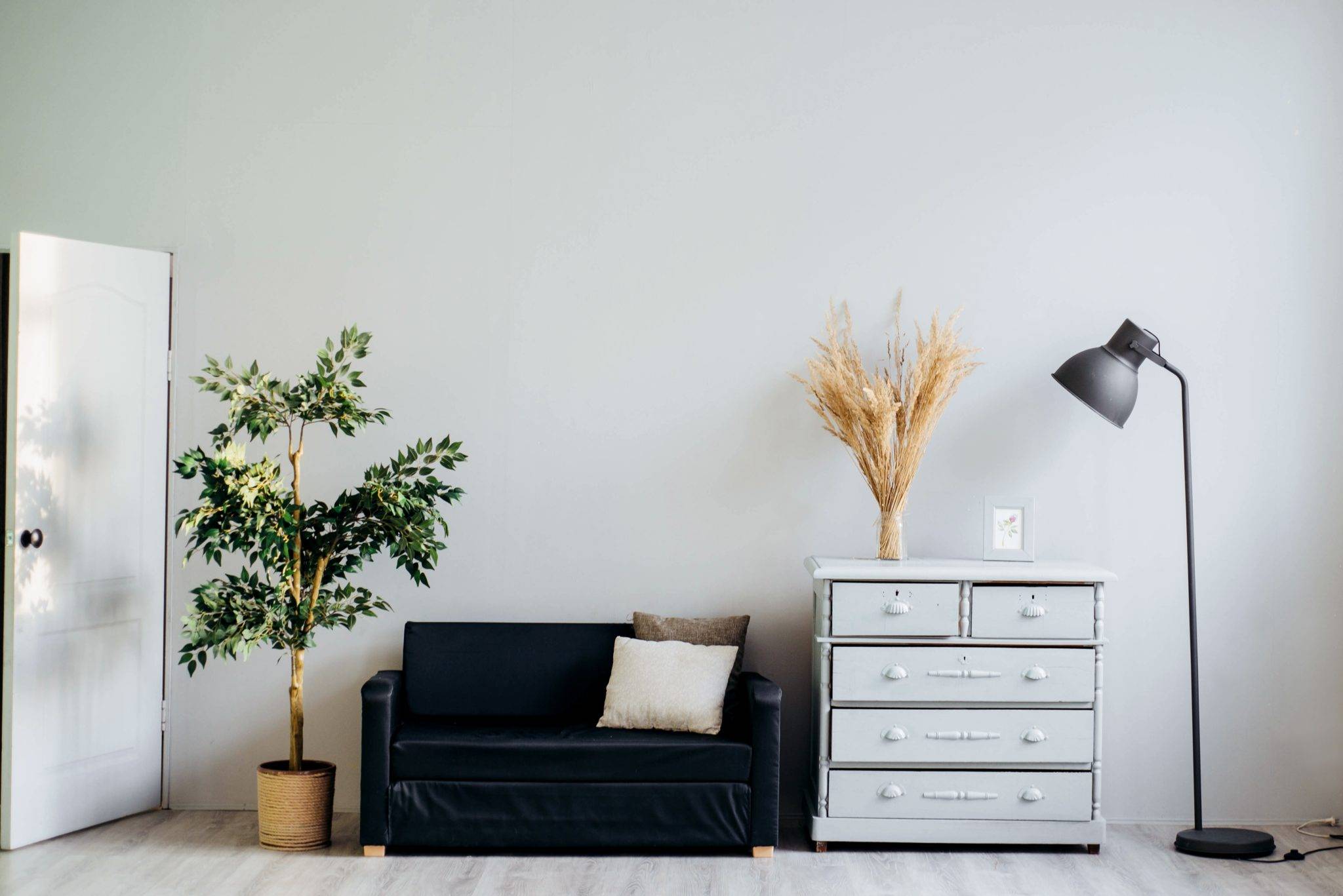
What Is Airbnb Plus? Airbnb Plus is a programme launched in Feb 2018, to recognise properties with hotel like attention to detail, exceptional quality, comfort and style. This new brand targets travellers who are still not comfortable with the idea of staying in someone’s home and who would actually prefer to stay in a hotel. Travelers who want a guarantee of good standards. 1. How is Airbnb Plus different? 2. How properties qualify for Airbnb Plus? 3. Benefits for travellers 4. Is it worth staying in a Plus home? 5. Benefits for hosts 6. Is Airbnb Plus worth the extra hassle for hosts? 1. How is Airbnb Plus Different? For many travellers, finding the property with excellent standards was a challenge. Right from the start, Airbnb has struggled with a lack of quality control over the accommodations listed on its platform. Additionally, there are also a large number of people who haven’t tried Airbnb yet simply because they don’t like a surprise and would instead take the well-trodden hotels for the holidays they have been planning for a long time. With the introduction of Plus, Airbnb now has three tiers for properties: a. Standard Airbnb Properties b. Properties by Airbnb Superhosts c. Airbnb Plus Properties a. Standard Airbnb Properties Identify: You won’t see a Superhost tag next to the host profile photo or any other tag. What are the standard Airbnb properties? The number of reviews on a property can be the critical differentiator in this class: If a property has under 20 reviews, it is hosted by a new host who hasn’t hosted long enough to qualify for the next tier, i.e. Superhost. ★ Book these listing with caution, read all recent reviews carefully. If a property has 20+ reviews – it is either not let out full time, OR the host has not been able to meet qualifying criteria for Superhosts. ★ If it is the later, avoid booking such listings at all times. b. Property by a Airbnb Superhost Identify: You will find a Superhost tag on the profile image of the host. What are properties by Superhost? Airbnb launched Superhost program in 2016 to reward the most devoted hosts with a special VIP status. About 10% of hosts on Airbnb are awarded Superhost status and every three months checked if they’ve met the following criteria for the past year: 4.8+ overall rating: To have a 4.8 or above-average overall rating based on reviews from Airbnb guests in the past year. 10+ stays: To have completed at least ten stays in the past year OR 100 nights over at least three completed stays (for long term bookings). <1% cancellation rate: They rarely cancel reservations unless there is an extenuating circumstance. 90% response rate: They respond to 90% of the messages within 24 hours. ★ Booking with a Superhost gives the quality assurance BUT keep in mind Superhost status is given to the host, not the property and it may be a new property and not as good as the previous one which won him this elite status – check the reviews carefully. c. Airbnb Plus Properties Identify: Airbnb Plus listings have a different layout, they appear in the same search result screen but with a tag of Plus on top. How is Airbnb Plus different from Superhost? Superhost program recognises outstanding hosts for their hospitality and commitment. Airbnb Plus recognises Home of Superhost that meet very high standards of quality and design. ★ Airbnb Plus properties are generally expensive than other listings as they maintain of comparatively higher standards. If one fits your budget, always try to go for a Plus property. 2. How properties qualify for Airbnb Plus? To qualify for Airbnb Plus, the host must: Maintain an overall average rating of 4.8 over the past year Not cancelled reservations over the past year (unless there were Airbnb extenuating circumstances) Additionally, the property offered must be: Thoughtfully designed to show a unique style and personality Well-equipped with amenities such as wifi, filter coffee and high-quality linens Well looked after, extra clean and clutter-free Every plus home is subjected to a 100+ point physical inspection along with a photography session by a specialist Airbnb photographer. See the property checklist referred by Airbnb during the qualifying procedure. Full list of the requirements for Airbnb Plus can be found here. 3. Benefits for travellers The key benefit of Airbnb Plus for travellers is consistency, and you can expect a hotel-like amenities in the home. Here are the other Airbnb Plus benefits for guests: 1. Expect Hotel Quality For people who prefer hotels, the high standards prescribed by Airbnb Plus make it possible for them to try Airbnb with confidence. You’ll no longer have to worry about surprises, cleaning issues and differences in amenities between their favourite hotels and a Plus home. 2. High Standards Plus home promises minimum standards and you don’t have to worry about reading reviews to find out the standards of the property and rather just focus on what suits your taste and requirements. 3. Find Properties for Specific Occasions Airbnb Plus makes it easier for you to find properties for specific occasions. Whether it is a honeymoon, family vacation or an active weekend in the outdoors. 4. Premium Customer Support Guests using Airbnb Plus home to travel get access to premium support to resolve issues faster and it is easier to reach Airbnb customer services. 5. No Waiting For Approval You no longer have to wait for the host to accept your reservation request, Airbnb Plus programs requires hosts to accepts almost all booking requests they get. 4. Is it worth staying in an Airbnb Plus home? If it fits in your budget, Yes! For a premium, Airbnb Plus home gives you the assurance and confidence of staying in a quality accommodation which you don’t get in Superhosted and Standard Airbnb listings. 5. Benefits for hosts 1. Increase In Bookings Airbnb Plus properties are placed in premium space on the website and appear higher in search results and means
How To Delete Airbnb Account Permanently – Is It The Best Option?
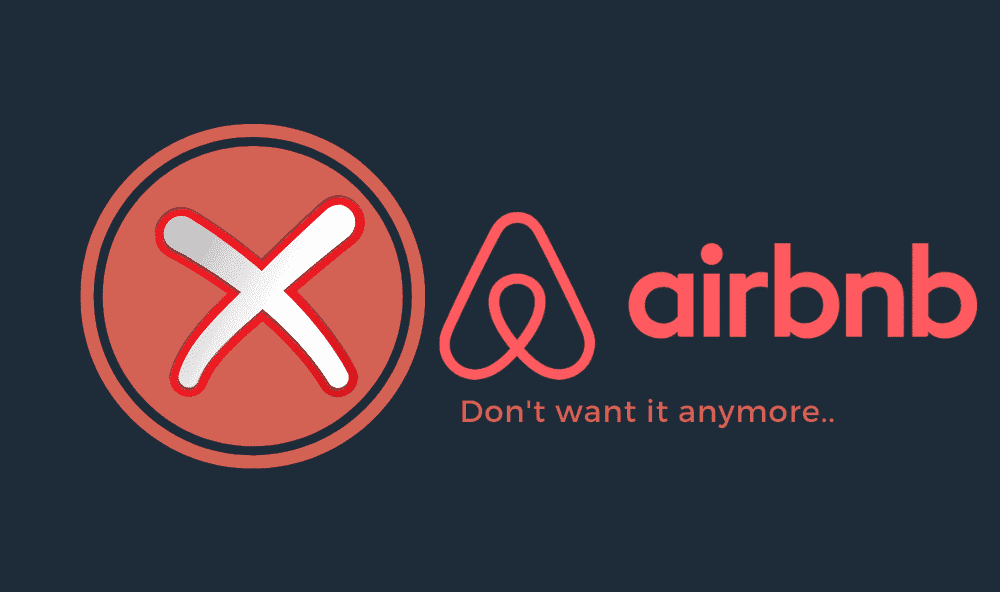
If you have decided to end your Airbnb journey, Airbnb gives you two options to choose from…you can either deactivate your account or delete it permanently. What happens when you deactivate Airbnb account? You can do it yourself from the account settings page of your profile. It is as good as deletion, but it is reversible. All your reservations as a host or a guest will be cancelled. Your profile will not be visible on Airbnb. If you are a host, your listings will be invisible. The reviews you have posted or messages you sent to others as a host or a guest will stay visible. Airbnb will retain your data, and you can reactivate your account it at any time in the future. What happens when you delete Airbnb account? You will need to contact Airbnb customer care to request deletion of your account. They will verify your identity for security purposes before accepting the deletion request. Once your account is deleted, you can not reactivate or recover any data. You will need to set up a new Airbnb account if you ever decide to join again. All your reservations as a host or a guest will be cancelled. Some of your data may be retained by Airbnb for legal purposes but will not be accessible on the website. How to deactivate your account https://youtu.be/3exJHrYKOQo Step 1: Login to your Airbnb account and head over to Account settings on top right corner of the screen. Alternatively you can directly go to the deactivation page. Step 2: Then choose ‘Settings’ in the menu that pops up. Step 3: Scroll to the bottom of the ‘Settings’ page and click at the link as show in the image below. Step 4: Choose the appropriate reason for your deactivation and click ‘Continue’ button at the bottom of the screen. Step 5: Click ‘Deactivate account’ button on the next page to confirm your account deactivation. How to delete your account You need to contact Airbnb customer services to request deletion of your Airbnb account; unlike ‘deactivation’, it cannot be done using the self-service pages. Step 1: Log into your Airbnb account on website (not on mobile or tablet app) and scroll to the bottom of the website and click on ‘Help’. Alternatively you can go directly to the Contact Us page from here. Step 2: Scroll to the bottom of the next screen as well and click on the ‘Contact us’ button Step 3: Choose ‘My Airbnb account’ on the next screen. Step 4: Choose ‘Update or remove account’ option on the screen that follows. Step 5: Choose ‘Delete or deactivate my account’. Step 6: Choose ‘I still need help’ on this screen that follows. Step 7: On the final screen, you can either choose to chat with the customer support or click on ‘Call us’ to reveal the phone number for Airbnb customer services in your country’. To know more about these two options, you can refer my blog post ‘4 ways to reach Airbnb when you need it the most‘ How long will Airbnb take to delete your account? Airbnb will start working on your deletion request immediately. The entire process is usually finished within 48 hours and you will be notified by email message from Airbnb that your account has now been deleted.
Top 5 First Aid Kits Essential for Your Airbnb Rental
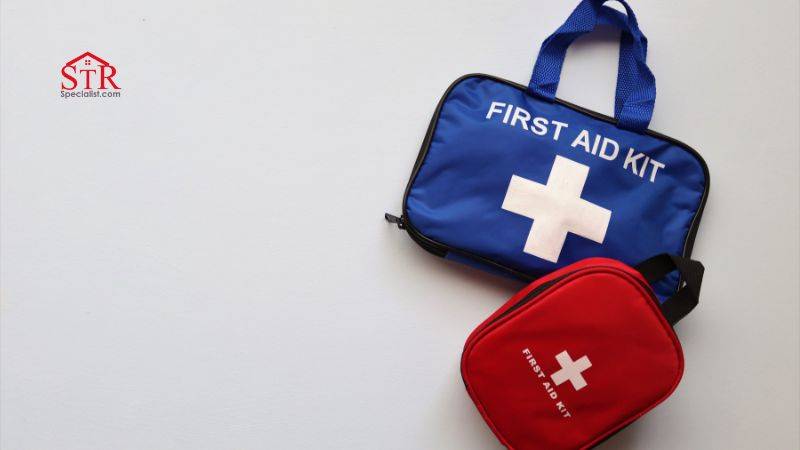
As Airbnb hosts strive to create a cozy and inviting environment, safety often takes a backseat. However, prioritizing the well-being of guests is paramount. Before embarking on the journey of decorating and perfecting the ambiance, investing in an appropriate first aid kit should be the primary step for ensuring a secure stay. Key Considerations for First Aid Kits When selecting a suitable first aid kit for your Airbnb, there are several important factors to consider. Here are some essential features to keep in mind: Ease of Use: Opt for a user-friendly kit that provides clear instructions and intuitive organization, ensuring quick and efficient access to medical supplies when needed. Compact Size: Choose a kit that is compact and easy to store, allowing you to keep it readily available without occupying excessive space in your Airbnb. Comprehensive Contents: Consider the number and variety of first aid items included in the kit. A larger selection reduces the need for frequent restocking. Remember to monitor and replace expired or depleted items such as alcohol swabs and antibiotic ointment. Durable Case Quality: Look for a sturdy and durable case that can withstand the rigors of travel and regular use, ensuring the longevity of the kit and the protection of its contents. Top 5 First Aid Kits for Your Airbnb After considering the aforementioned features, we have curated a list of the top five first-aid kits that are ideal for your Airbnb rental: 1. Johnson & Johnson Portable, Compact Emergency First Aid Kit: Your Reliable First Aid Solution When it comes to a versatile and reliable first aid kit for your Airbnb, the Johnson & Johnson Portable, Compact Emergency First Aid Kit is a top choice. This trusted brand ensures that all the essential basics are included, offering peace of mind for both hosts and guests. Key features of the Johnson & Johnson kit include: Durable and Organized: The kit features a sturdy plastic case that keeps the first aid items neatly organized and easily accessible. No more rummaging through the clutter to find what you need in an emergency. Extensive Coverage: With 160 carefully selected items, this kit provides comprehensive coverage for a range of first aid needs in your Airbnb. From bandages to painkillers and other essential supplies, it caters to various minor emergencies that may arise. User-Friendly Design: The kit is thoughtfully designed for user convenience. Its intuitive organization ensures that all items are easy to locate at a glance. This user-friendly approach makes it effortless to handle emergencies promptly and efficiently. 2. DeftGet 163-Piece First Aid Kit: Lightweight and Versatile When searching for a lightweight and durable first aid kit for your Airbnb, the DeftGet 163-Piece First Aid Kit is an excellent choice. This affordable kit offers a comprehensive selection of medical-grade items, including handy tools like scissors and medical-grade tweezers. Highlighted features of the DeftGet 163-Piece First Aid Kit: Wide Variety of Medical-Grade Items: This kit encompasses a wide range of medical-grade first aid items, ensuring you have the necessary supplies to address minor scrapes, cuts, and bruises. It provides peace of mind for both hosts and guests. Easy Storage and Durability: The durable bag makes it easy to store and transport the kit. Its compact size ensures it won’t take up much space in your Airbnb, while the robust construction safeguards the contents during travel and emergencies. Multi-Purpose Design: The versatility of this kit makes it an ideal choice for your Airbnb guests. If permitted, they can take it with them when venturing outdoors, ensuring they are prepared for unforeseen situations. Additionally, DeftGet recommends its first aid kit for areas prone to earthquakes or other natural disasters, emphasizing its usefulness in emergency scenarios. 3. M2 BASICS 150-Piece First Aid Kit with Compact Bag: Versatile and Comprehensive The M2 BASICS 150-Piece First Aid Kit may appear small, but it packs a punch with its impressive collection of 300 essential first aid items. This versatility makes it an ideal choice for both trained medical personnel and your Airbnb guests. Additional features that make it perfect for your rental include: Wide Variety of Items: This kit contains a diverse range of items to address any potential accidents that may occur in your Airbnb. From minor cuts to scrapes and more, it has you covered. Compact and Affordable: Despite its comprehensive selection, the M2 BASICS kit remains compact in size, ensuring it won’t take up much space in your rental. Additionally, it offers an affordable option for equipping your Airbnb with a reliable first aid solution. 4. Be Smart Get Prepared 100-Piece First Aid Kit: Quality and Value The Be Smart Get Prepared 100-Piece First Aid Kit lives up to its name by offering quality and value for your Airbnb. While it may have fewer pieces compared to other kits, it still provides excellent coverage for minor accidents. Key features include: Compact and Well-Equipped: With 100 essential first aid items, including anti-bacterial wipes, cold compresses, and antibiotic creams, this kit has the necessary supplies to handle various injuries. It also caters to people with allergies, ensuring their specific needs are met. User-Friendly Design: The kit includes a guide to help your guests understand when and how to use the items effectively, ensuring their safety and well-being. The sturdy and durable plastic case further enhances its user-friendly design. 5. First Aid Only 298 Piece All-Purpose First Aid Emergency Kit Kit Includes: Adhesive fabric and plastic bandages, antibiotic ointments, BZK antiseptic towelettes, burn cream packets, aspirin, ibuprofen, gauze roll and pads, wound closures, cold pack, and other multi-use items for any potential emergency Convenient Packaging: Fabric case with clear plastic pockets for organization and easy access to first aid supplies in an emergency Compact and Spacious: Two separate layers with individual compartments make retrieval easy and quick. Soft sided, zippered case great for travel and on-the-go use First Aid Care Ideal For First aid care for home, travel, and on-the-go use Conclusion It’s never too late to acquire a first aid kit for your
Top 8 Deck Features on Airbnb That Impress Your Guests
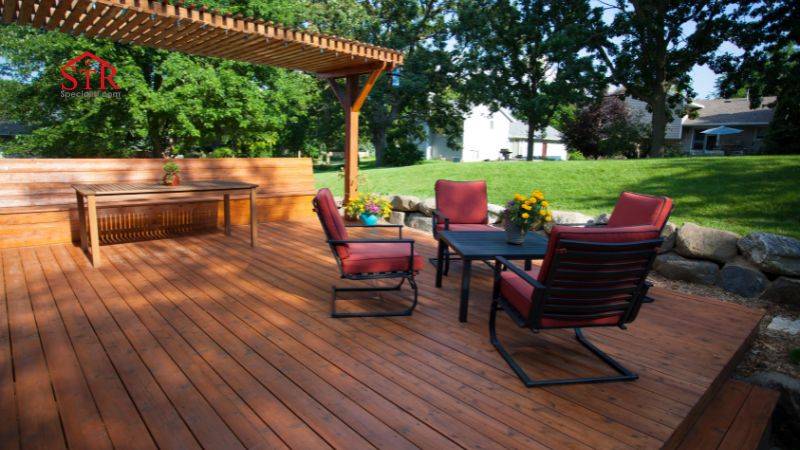
As an Airbnb host, having a deck as part of your property can certainly earn you additional appreciation from your guests. By incorporating these deck features as a vital part of your guest experience, you can significantly enhance both your deck and hosting standards. This can potentially lead to better reviews and ideally, a consistently busy season throughout the year. Here are eight fantastic deck features for your Airbnb that can help elevate your deck’s appeal and leave your guests in awe. 1. Char-Griller E3001 Grillin’ Pro 40,800-BTU Gas Grill A deck isn’t quite complete without a high-quality barbeque grill. Picture your guests savoring warm summer evenings while barbequing on the Char-Griller E3001 Grillin’ Pro gas grill. This grill not only facilitates easy cooking of various types of meat, but its stylish design also adds to the appeal. This grill is budget-friendly, and your guests are sure to appreciate its excellent quality, robustness, convenience, and the following notable features: A spacious grilling area of 438 square inches Includes a side burner and a warming rack Easy-to-use ignition and flame control dials Temperature regulation for perfectly cooked steak Sturdy steel body with a matte black finish Relatively simple to assemble and clean However, the grill’s body is susceptible to rust. Ensure you invest in a grill cover and instruct your guests to cover the grill after every use to maintain its longevity. 2. Outland Firebowl Outdoor Portable Propane Gas Fire Pit Adding a fire feature to your deck can elevate its attractiveness significantly. Consider incorporating the Outland Firebowl 893 Deluxe Outdoor Portable Propane Gas Fire Pit. With this feature, your deck becomes a year-round gathering spot, demonstrating the versatility of your Airbnb space. Powered by propane gas for a clean, smokeless experience Delivers an authentic campfire aesthetic Compact and portable design for convenience and space efficiency Comes fully equipped with a pre-attached hose for your propane tank, a Carry and Cover Kit, an adjustable regulator for the flames, and numerous additional accessories Durably built with a steel body finished with a protective enamel covering Though it lacks the traditional crackling fire sound and doesn’t produce a roaring fire, this pit creates a cozy atmosphere. 3. Honeywell Belmar 52-Inch Indoor/Outdoor Ceiling Fan For those with a covered deck, a ceiling fan is a great feature to maintain a cool environment on warm evenings and keep insects at bay. The Honeywell Belmar ceiling fan is perfect for medium and large spaces, coming with a limited lifetime manufacturer warranty. Its sleek, modern appearance is a fit for pergolas and gazebos, offering features such as: Elegant design A quiet, all-season multi-directional motor Ease of control via pull chains or a remote Appropriate-sized blades for deck spaces However, the fan only offers one speed. 4. NEW RUICHENG Artificial Plant Incorporating artificial potted plants can impress nature enthusiasts among your guests. We recommend the hassle-free New Ruicheng Artificial plant. Constructed from eco-friendly material Requires minimal maintenance Comes in a variety of three different plants 5. QACA 20 Pack LED Stair Lights Kit Low Voltage Landscape Lights Enhancing your outdoor space with deck lights will boost both its functionality and visual appeal. The selected LED lights are energy-efficient and highly beneficial for your deck. Their primary features include: Modern half-moon design Waterproof and dust-resistant Low-voltage light for a cozy ambiance 6. AuKing Mini Projector 2023 Upgraded Portable Video-Projector Consider offering an outdoor movie experience to your guests with this popular mini-projector, suitable for big or small projector screens. Exceptional viewing experience with LED lighting Multimedia compatibility with devices like phones, laptops, or TVs Offers a viewing experience ranging from 32″ up to 170″ without sacrificing quality Though this projector is affordable, it’s not top-of-the-line. However, it’s sufficient for guests who enjoy the outdoors. 7. SMART DESIGN MAT SMM005 Reversible Indoor/Outdoor Plastic Rugs An area rug on your deck can give it an indoors-like appeal. The Smart Design Mat is our recommendation. Easy to relocate, especially during cleaning Resistant to elements like rain and sunshine Reversible Soft and easy to clean 8. Polk Audio Atrium 4 Outdoor Speakers If your Airbnb permits outdoor parties or loud music, equip your guests with Polk Audio outdoor speakers. Ideal for all seasons, these speakers can withstand extreme weather conditions. Position them on an outdoor wall or hidden in a corner for guests to enjoy music outdoors. Powerful bass Superior sound distribution Easy installation on the wall with a robust and straightforward one-click wall mounting bracket While the speakers deliver strong bass, they won’t produce a disruptive rumbling experience. Most users rate the sound quality a 4/5 considering its size. In Conclusion Investing in your deck features is a strategic way to enhance your Airbnb appeal. Transform your home into a seasonal haven with a fire pit, a rug, or a pair of speakers to foster summertime enjoyment. You may also like: 7 Strategies for Managing an Airbnb Without a Kitchen Top 5 Products for Enhancing Energy Efficiency in Your Airbnb Rental
Airbnb Co-Host Agreement Or Property Management Contract

If you are looking to manage someone’s property on Airbnb or if you are a landlord and getting someone to manage it for you, having a written Airbnb property management contract is always a good idea. For friends, it’s not always necessary if they are looking after it temporarily for you but if needed, don’t hesitate to get this rolled out and agreed to protect both you and the other person in case of a problem. Here is the sample Airbnb property management contract I use for taking on a property to manage, if you intend to use this template, please alter it as per your individual needs and local legislation. You can get the downloadable copy of the Airbnb management agreement here. SAMPLE – PROPERTY MANAGEMENT CONTRACT This agreement is between: [Management Company or Host Name], [Address] (referred to as “Host”, or “NAME OF THE INDIVIDUAL”) AND [Insert name of property owner], [Insert permanent Address] (referred to as “you”) 1. Introduction: This agreement sets out the terms and conditions upon which [HOST NAME] will provide short let management services to you in relation to your property that you wish to let out through Airbnb or similar homestay booking websites. 2. Definitions: In this agreement, some terms are used regularly. These are capitalized and are defined as follows: “Availability Period” means the period for which the Property is available for receiving Guests; “Cleaning Fee” means a fee for cleaning and preparing the property for occupation by a Guest; “Excluded Services” means the services that Host does not provide as part of this agreement. These are listed in Appendix A; “Extra Maintenance Services” means services such as deep clean, carpet shampoo, upholstery cleaning, mould removal, pest control, oven cleaning, external window/balcony cleaning, wall painting, work at height, serious plumbing, electrical or gas works and anything that is not covered by our Services; “Fee” means the fees charged by [HOST NAME] in accordance with clause 8 below; “Guest” means a guest who is renting the property through one of the Homestay Website; “Homestay Website” means a short stay rental marketplace including but not limited to Airbnb, Homeaway, Booking.com, FlipKey, HomeAway and such other websites as chosen by us. In cases where a guest makes a reservation directly with the Host, [HOST NAME] will extend the concept of Homestay Website to that reservation; “Services” means the short let management services described in clause 3 below; “Listing” means any advertisement of your Property on the Homestay Website; “Room Rent” shall mean the total amount paid by the Guest for a booking less any Airbnb Cleaning Fee and any service fee and taxes levied by the relevant Homestay Website and/or any card processing fee ; “Property” means [property address] or such other property as agreed between [HOST NAME] and you from time to time. 3. Services 3.1 In exchange for the fee you pay to the [HOST NAME], Host shall provide the following services to you: 3.1.1 Writing up your listing and optimizing it across various Homestay Websites. The host shall select the Homestay Websites to list on unless you tell us otherwise; 3.1.2 Managing the pricing and availability calendar across various Homestay Website(s) as Host deems fit. You agree that [HOST NAME] has the expertise to make pricing decisions and is therefore not required to consult with you before accepting a booking from a Guest or setting the price for any Bookings. However, the Host will bear in mind your requirements you have informed about your monthly income expectations or your preferences around the type of Guests you wish to accept in the property; 3.1.3 Engaging a photographer (extra fees apply) to take photos of the Property for one full photoshoot. Should you cancel or postpone this photoshoot with less than 48 hours’ notice, or should a re-take photo is required due to the property not being reasonably ready as discussed, the photographer reserves the right to charge the Host an additional XX fee to cover the cost of an additional photoshoot; 3.1.4 Responding to any enquiries raised by Guests in relation to your Listings and managing all communications with the Guests including any disputes that may arise; 3.1.5 Provide housekeeping and linen service only once at the start of each Guest’s stay; 3.1.6 Remotely coordinating urgent repairs or maintenance works to your property if and only if required to ensure complete Guest satisfaction; and 3.2 You agree that Host shall not provide the Excluded Services as part of this agreement. If you need any services, Host can discuss them as and when needed and agree to arrange them for you for extra cost plus our expenses. 4. Host Obligations 4.1 In order to allow us to provide the Services set out in this agreement you agree that Owner will: 4.1.1 Provide us with complete, accurate and timely information about the Property and any other information reasonably requested by us. It is your responsibility to ensure that we have all the information needed to operate and maintain the Property and look after the safety of each Guest; 4.1.2 Provide all the items set out in Airbnb essentials checklist (see Appendix B). If these are not provided, we will buy these and charge you at cost plus reasonable expenses; 4.1.3 Maintain the Property at all times which includes doing repairs as soon as possible upon request by [Host Name] or refunding [Host Name] for any repairs; 4.1.4 Comply with all legal requirements applicable to a landlord in the US including but not limited to fire safety regulations, gas and electrical safety etc.; 4.1.5 Remove or lock away any expensive and fragile items in the Property and let us know about any particularly fragile or sensitive areas in the Property that you want us to bear in mind; 4.1.6 Empty at all shelf in the fridge, kitchen cabinets and in the bathroom and at least 1 drawer in a wardrobe for Guest use; and 4.1.7 Cooperate fully with us in the provision of the Services and pay our Fee and other costs when due. 5.
7 Strategies for Managing an Airbnb Without a Kitchen
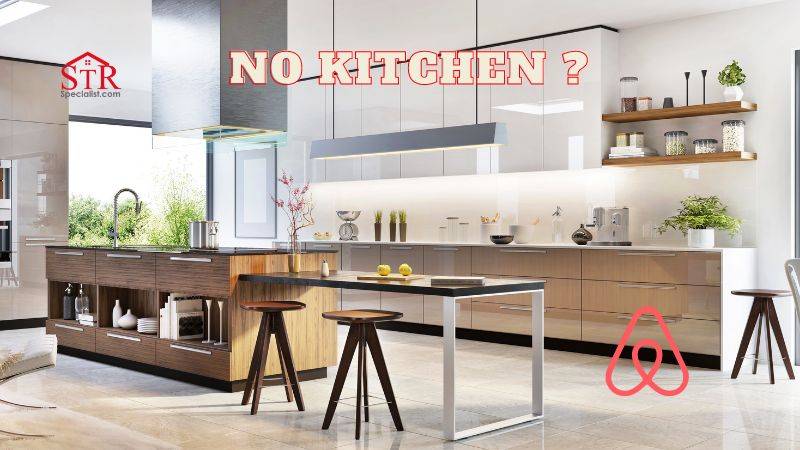
New Airbnb hosts often wonder, “Is it possible to host without kitchen amenities?” and “Should I invest in a kitchenette for my Airbnb?” While having a fully-equipped kitchen can certainly boost your hosting reputation, it is not a deal-breaker if you don’t have one. Many guests do not necessarily require a cooking or food preparation area, particularly if their stay is brief or if there are plenty of budget-friendly dining options nearby. However, if you wish to offer a semblance of a kitchen experience without the hassle of constructing a new kitchen or granting access to your own personal space, we have compiled seven strategies to manage an Airbnb without a kitchen. 1. Prioritize Compact Kitchen Gadgets and Tools If your Airbnb property lacks a dedicated kitchen, it likely appeals to smaller groups such as couples, a few friends, or solo travelers. You can still offer them key functions of a full kitchen, like brewing coffee, blending fruits, or frying an egg. The likelihood of a guest needing to bake a cake or roast a turkey while staying at an Airbnb is low. Key appliances that simulate a home kitchen feel include a coffee maker, electric kettle, blender, french press, compact microwave, toaster, mini-fridge, and a double burner tabletop stove, along with a few small pots and a pan. For example, consider investing in a double burner like the Ovente model, known for its quick heat-up time, temperature control, and easy cleanup. Remember to also include essential, durable utensils like spatulas, spoons, whisks, serving utensils, knives, cutting boards, and bowls. 2. Leverage Innovative Architectural Designs to Optimize Space With thoughtful planning and smart design, you can transform any constrained space into a functional kitchenette equipped with necessary food prep and cooking items. Whether it’s an area between the bedroom and the living room or a hallway leading to the living area, brainstorm and experiment with different design concepts to seamlessly incorporate a kitchenette into the available space. You can opt for slimline cabinets, bar sinks, wall-mounted shelves, hooks, and other streamlined kitchen essentials to make your kitchenette appear fully equipped. For example, you could pair this compact iAnomla bar sink with a sleek ESOW faucet for an unobtrusive yet practical addition to food preparation. The bar sink serves a dual function as both a workspace and a sink – isn’t that clever? 3. Choose Shelves and Rails Over Large Cabinets The duration of a guest’s stay often determines their needs. Guests planning a long-term stay are likely to prefer a property with a full kitchen, as dining out or relying on minimalist meal prep may not suit them. In contrast, short-term guests may not require a full kitchen, perhaps needing only basic meal preparation amenities. The utensils, seasonings, and ingredients they require can be conveniently stored on a shelf above the bar sink. Alternatively, consider using a rail with hooks for hanging utensils, like this Wallniture Gourmet kitchen rail that comes with ten hooks, perfect for hanging pans, whisks, spoons, mugs, and pots. 4. Seamlessly Integrate the Kitchenette into the Room A small space doesn’t have to appear cluttered. With careful arrangement and tasteful decor choices, you can design an appealing kitchenette that makes food and snack preparation straightforward for your guests. The selection of paint, wall decorations, cabinet designs, shelves, and appliances should harmonize with the rest of the room. For example, coordinate the colors of your cabinets and appliances. A stainless steel electric kettle or coffee maker will complement a beige cabinet or countertop, resulting in a balanced, uncluttered kitchen area. This compact Cuisinart coffee maker fits well with most kitchenette color schemes and has a capacity of four cups. 5. Maximize Every Square Foot Even in the tiniest of spaces, you can design a fully-equipped kitchenette. The trick is to use every bit of available space for functional aspects of the food preparation area. Whether it’s positioning a mini-fridge beneath a bar sink or fitting a corner worktable in the unused area behind a door, every inch of your small Airbnb can serve a purpose. When dealing with small spaces, it’s important to choose compact appliances as standard ones might not fit. For example, this stylish Comfee microwave is compact enough to sit on a small countertop and features a user-friendly bright digital display. 6. Add a Personal Touch to the Kitchenette To make your kitchenette more appealing, aim to create a warm and welcoming food prep and cooking space. Guests may overlook the small size of the area if it feels cozy, relaxed, or inspirational. Rustic wall art, charming vintage utensils, and handmade floor mats can add a personalized touch. Be imaginative by combining elements from the best kitchenette designs seen in other Airbnbs with your own preferences. For instance, you could incorporate a sense of humor and lay out kitchen rules for your guests with decorative wooden plaques featuring amusing messages, like this funny canvas print from Pinetree Art. 7. Draw Inspiration from Other Efficiently Designed Kitchenettes If you’re new to hosting, you can gain valuable insights from experienced superhosts on how to design and utilize space in your rental. Investigate top-rated kitchenette designs on Airbnb, paying attention to the choice of appliances, color palettes, decor, and architectural features. This compact kitchenette demonstrates how minimalist techniques can deliver a luxurious kitchen experience in a small space. Notice how the superhost has employed overhead shelving to house kitchen essentials like ingredients, spices, and utensils. You can replicate this style with these Lehom floating shelves. In Conclusion Many Airbnb guests value having a specific area for food preparation and cooking. If your property doesn’t include a full kitchen, or if you’d prefer guests not to share your main kitchen, you can set up a kitchenette within your rental space. The strategies mentioned above will assist you in crafting a suitable and inviting kitchenette for your guests. You may also like: Understanding Airbnb Cleaning Fees: A Comprehensive Guide Dealing with Complaints from Airbnb Neighbors: How to Take Action
Top 5 Products for Enhancing Energy Efficiency in Your Airbnb Rental
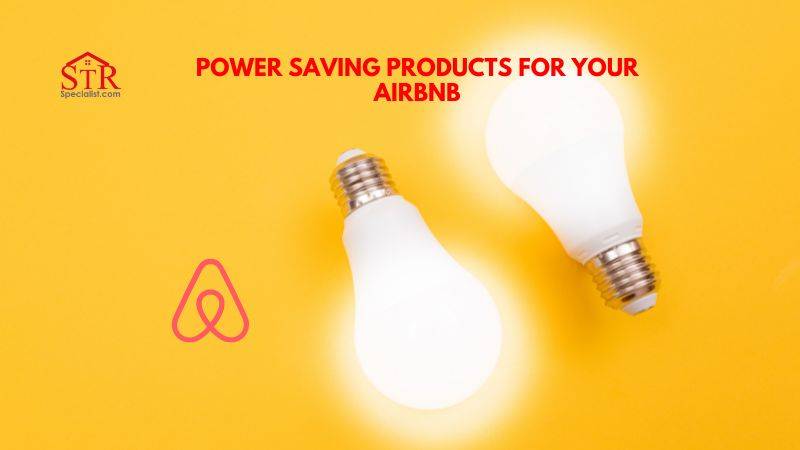
As an Airbnb host, maximizing profit is key. While the trendy decor and guest amenities are important, cutting costs is often overlooked. Electricity expenses can significantly impact your bottom line. Luckily, there’s a wealth of energy-efficient products and devices available today that can transform your Airbnb home. Discover the secrets to improving energy efficiency and watch your profits soar. In addition to boosting your profit, there’s another advantage to upgrading your Airbnb rental with energy-efficient products: marketing your home as environmentally friendly. By embracing sustainability, you not only reduce costs but also enhance your guests’ experience. Discover these five game-changing products that will make your Airbnb more energy efficient and attract eco-conscious travelers. 1. LED Lightbulbs: Illuminate Your Airbnb Efficiently and Cost-Effectively Upgrade your Airbnb’s lighting with LED lightbulbs, a cutting-edge technology that outshines traditional incandescent and CFL bulbs. Unlike incandescent bulbs, which waste energy by generating excess heat, LEDs use semiconductors to produce light more efficiently. This translates to significant long-term cost savings. According to USA Today, switching to LED bulbs can save you approximately $3.98 per bulb annually in electricity costs compared to incandescent lighting. While LED bulbs may have a higher upfront cost, their lifespan of approximately ten years more than compensates for it. With an average home having around 40 lightbulbs, you could save an estimated $70 per bulb over a decade, amounting to a staggering $2,800 in total savings. Embrace LED technology and illuminate your Airbnb while reaping the financial benefits. 2. Smart Power Strips: Conquer Vampire Load and Slash Energy Costs Unleash the power of smart technology in your Airbnb with intelligent power strips. Did you know that many of your appliances and devices continue to consume energy even when they’re switched off or in sleep mode? This phenomenon, known as “vampire load,” silently drains electricity and adds up to a significant energy drain. Combat this wastefulness by equipping your rental with smart power strips. These innovative devices cut off power to idle electronics, ensuring they don’t draw unnecessary energy. According to The National Renewable Energy Laboratory, vampire load can contribute to additional costs of up to $200 per year in an average home. By investing in smart power strips, you not only prevent energy wastage but also substantially reduce electricity expenses. Make a smart choice for your Airbnb and take control over the vampire load to enjoy long-term savings and enhanced energy efficiency. 3. Window Insulation Kits: Seal the Savings and Enhance Energy Efficiency Don’t let your Airbnb’s energy escape through inefficient windows. According to the US Department of Energy, a staggering 25-30% of residential heating and cooling energy is lost through windows. While window replacement can be a costly and extensive renovation, there’s a simpler and more affordable solution available. Enter window insulation kits, the key to improving energy efficiency without the need for major renovations. These cost-effective products offer a straightforward approach to enhancing the performance of your windows. By sealing gaps and preventing drafts, window insulation kits help you retain indoor heating and cooling, resulting in substantial energy savings. Investing in window insulation kits not only reduces energy waste but also improves comfort for your Airbnb guests. Take a proactive step towards energy efficiency with these practical and budget-friendly solutions, maximizing savings and minimizing environmental impact. 4. Smart Thermostat: Achieve Optimal Comfort and Energy Savings Maintaining a constant temperature in your Airbnb may not be necessary at all times. With guests coming and going, your thermostat’s control can be unpredictable. However, incorporating a smart thermometer into your rental can revolutionize energy usage and efficiency. A smart thermostat offers two significant advantages. Firstly, you can program it to automatically adjust the temperature when no guests or residents are present, ensuring energy is not wasted unnecessarily. Secondly, you gain remote access to these thermostats via a mobile app, empowering you to manually set more efficient temperature settings during extended periods of vacancy. By embracing a smart thermostat, you regain control over energy usage and create a comfortable environment for your guests. Enjoy the convenience of optimizing temperature settings to save energy and reduce costs, all from the convenience of your mobile device. Elevate your Airbnb’s energy efficiency with this innovative technology. 5. Smart Charging Stations: Efficient Power Management for Your Devices Don’t let your mobile devices drain unnecessary power even when they’re fully charged. Traditional charging stations allow devices like phones, e-readers, and tablets to continuously draw power from the source, even after reaching full charge. Surprisingly, even a charger left plugged in without any device connected still consumes power. Enter smart charging stations, the solution to optimize power management. These intelligent stations eliminate wasteful energy consumption by automatically cutting off the power supply to devices once they reach full charge. By utilizing smart charging stations, you can prevent the cumulative drain of multiple devices, even if each device individually consumes a small amount of energy. Conclusion Achieving energy efficiency in your Airbnb doesn’t require costly investments in green technology or elaborate solar panel installations. By focusing on even the smallest components, you can accumulate substantial energy savings. Whether it’s a simple switch to energy-efficient lightbulbs or incorporating power-saving charging stations, every step counts. Once you’ve made the transition to energy efficiency, you’ll never look back. The combined impact of these small changes will enhance sustainability, reduce costs, and contribute to a greener future. Embrace the power of energy efficiency in your Airbnb and enjoy the benefits it brings to both your business and the environment. You may also like: Understanding Airbnb Cleaning Fees: A Comprehensive Guide Dealing with Complaints from Airbnb Neighbors: How to Take Action
Understanding Airbnb Cleaning Fees: A Comprehensive Guide
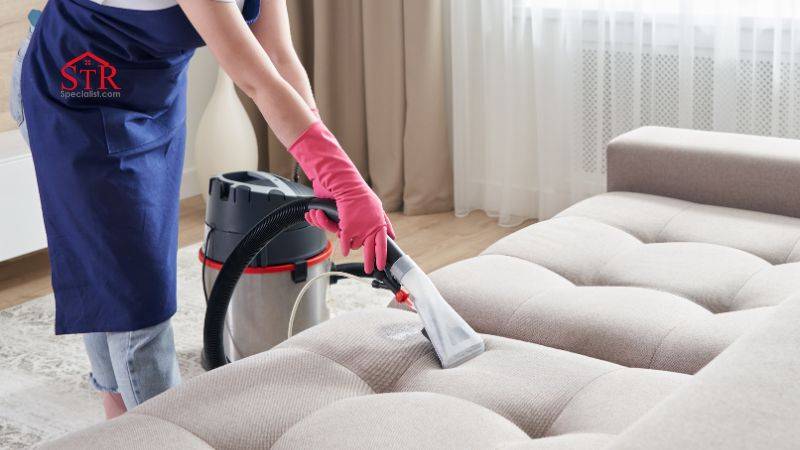
While Airbnb’s cleaning fees might not be the most riveting dinner conversation topic (unless you lead a particularly adventurous lifestyle), they are indeed significant. That’s precisely why this article aims to provide you with an all-encompassing understanding of Airbnb’s cleaning fees and practical ways to leverage them effectively. Understanding the Airbnb Cleaning Fee Mechanism The cleaning fee on Airbnb is a one-time charge levied by hosts on each booking to manage cleaning expenses. This fee, incorporated into the total booking cost, is borne by the guest(s). It’s important to note that this is not a refundable security deposit. Irrespective of the number of guests or the length of their stay, the standard cleaning fee remains constant; hosts cannot hike it for additional guests or nights. The cleaning fee assists hosts in covering the costs associated with preparing their listings for incoming guests. It might include: Cleaning supplies Washing and drying towels and linen Toilet paper Toiletries like shampoo, soap, etc. Cleaning services charges In the search results, guests view a nightly rate that factors in the cleaning fee divided by the total number of nights in their stay. As per Airbnb’s 2023 update, guests can now filter search results based on the total cost of the stay, inclusive of all fees but before taxes. By enabling the “display total price” toggle before initiating a search, guests will see complete prices in search results, as well as on the map, filter, and listing pages. This ensures that the cleaning fee doesn’t come as an unpleasant surprise to potential guests. Furthermore, prior to confirming their booking, guests can access a detailed price breakdown. This includes the nightly rate, cleaning fee, Airbnb service fee, discounts, and taxes. Airbnb prides itself on its transparency in this regard. Understanding the Typical Airbnb Cleaning Fee While the average cleaning fee for Airbnb falls roughly between $50 and $80, this number can be somewhat deceptive. Given the vast range of listings, from compact rooms in communal houses to grand mansions boasting 10+ rooms, pinpointing an exact average proves challenging. The most practical approach to identifying a feasible average is by examining the cleaning fees of similar listings in your vicinity and deriving an average from those data points. Determining Your Cleaning Fee for a House The cleaning fee you choose to charge is largely contingent on the competitiveness of your listing’s market. To ensure your listing attracts bookings, it’s essential that your cleaning fee, in conjunction with your nightly fee, is competitive. Here’s how you can calculate an appropriate cleaning fee: Approach 1: Identify 10 – 20 listings in your area similar to yours. Record their cleaning fees. Keep note of their nightly fees too, as the cleaning fees contribute to the overall booking cost. Calculate the average cleaning fee of your competitors. Price your cleaning fee as competitively as possible while ensuring it covers all of your costs. If there’s scope to cover all your costs and still earn a small profit (while maintaining competitiveness), factor this into your fee. Approach 2: Reach out to two or three cleaning services in your vicinity. Ask each for a quote for a complete changeover, including linen. Determine the average of these quotes and set this as your cleaning fee. Establishing Appropriate House Cleaning Rates As an Airbnb host, determining a fitting cleaning fee is crucial for your success. It’s important to meticulously consider your pricing, as an exorbitant fee may escalate the cost for short stays and could deter potential bookings. Therefore, your fee should align with the nature of your property listing. If your property is pitched as luxurious, situated in a high-end locality, and carries a significant nightly rate, guests may be more accepting of a higher cleaning fee. However, if you’re listing a small studio apartment, charging the same cleaning fee as a host offering a five-bedroom mansion wouldn’t be reasonable. Your fee should always reflect the value of your property and its services. Understanding What an Airbnb Cleaning Fee Covers The application of a cleaning fee is solely the host’s decision and is intended to cover expenses related to tidying up the property for incoming guests. Though optional, this fee is generally used to finance the costs of cleaning supplies, laundering linens, hiring cleaning services, and replenishing amenities. Is a Cleaning Fee Mandatory? Whether to charge a cleaning fee is entirely the host’s prerogative, but it’s worth mentioning that levying such a fee is a prevalent practice on Airbnb. Nevertheless, some hosts opt not to impose a separate cleaning fee, instead incorporating it into their total nightly price. In my opinion, it is not advisable to skip the cleaning fee as it may leave hosts financially strained, especially in the case of numerous short, 1-2 night stays. Can Airbnb Cleaning Fees Be Negotiated? While cleaning fees are automatically included when a guest books a property, it isn’t rare for guests to contact a host prior to booking, seeking special discounts or waiving cleaning fees. In my personal experience, it’s generally best to steer clear of negotiating cleaning fees with guests on Airbnb, as such guests often turn out to be excessively particular and might prove to be more trouble than it’s worth. In response to requests for negotiation, I usually reply with something like: “Hello, Thanks for your inquiry. Unfortunately, we can’t reduce or eliminate the cleaning fee as it’s already set at the bare minimum to cover necessary costs. As much as I’d like to offer a discount, it’s not feasible. If you have any other questions, please feel free to ask. Thank you, Rowan.” *Do note that cleaning fees are not automatically included in Special Offers. If you’re planning to make a special offer, remember to incorporate the cleaning fee in the total cost. Is the Airbnb Cleaning Fee Refundable? If a booking is canceled (regardless of the cancellation policy), the cleaning fee is fully refunded to the guest, provided the cancellation occurs before check-in time. However, if the cancellation takes place during a guest’s stay, the cleaning fee is not
Dealing with Complaints from Airbnb Neighbors: How to Take Action

Navigating the challenges of hosting an Airbnb includes managing potential neighbor complaints. Discover effective strategies to prevent and address unhappy neighbors, ensuring a smooth operation for your business. Explore tips on avoiding complaints, handling upset neighbors, and maintaining positive guest experiences. Additionally, learn about common guest complaints and gain practical insights for mitigating issues and securing positive reviews. Common Causes of Airbnb Neighbor Complaints When hosting Airbnb guests, it’s important to be aware of the potential issues that can arise with neighbors. Strangers in close proximity can make neighbors uncomfortable, especially if the guests exhibit rude or aggressive behavior, leading to concerns about safety. Hosting frequent parties or events at your vacation rental can be a major source of frustration for neighbors, particularly in tranquil residential areas where excessive noise disrupts the peace and quiet. Parking problems can also ignite conflicts between neighbors and guests. If guests park in unauthorized areas or obstruct driveways, it’s understandable that neighbors will become annoyed, potentially prompting involvement from local authorities. To avoid parking issues, it’s crucial to provide clear instructions to guests regarding designated parking areas and guidelines. Including this information, along with check-in instructions, in pre-arrival messages can prevent guests from making assumptions and help maintain positive relations with neighbors. The Consequences of Ignoring Neighbor Complaints as an Airbnb Host When neighbors express their dissatisfaction with your vacation rental, it is crucial to address their concerns promptly. Ignoring their complaints can lead to escalating issues with potential consequences. In the best-case scenario, neighbors may initially approach you directly to voice their grievances. Responding appropriately and resolving the matter can help maintain a positive relationship and prevent further escalation involving law enforcement or Airbnb support. However, failing to take action may erode trust, prompting neighbors to take additional steps. They can report both you and your property to Airbnb through the Neighborhood Support process, enabling concerned neighbors to submit online complaints. Airbnb will review the complaint, reaching out to you as the host. They will conduct an investigation and provide feedback to the neighbor. While it’s unlikely that Airbnb will suspend or remove your listing, accumulating multiple complaints can be detrimental to your vacation rental business. Moreover, neighbors might choose to pursue legal action. If your guests violate local municipal or community laws, such as noise regulations, neighbors may involve local authorities, code enforcement, or building management. In extreme cases, they may file a lawsuit against you in a small claims court, although such actions are typically considered a last resort due to the associated risks, time, and expenses involved. Proactive Steps to Prevent Neighbor Complaints about Your Short-Term Rental By taking proactive measures and employing common-sense practices, you can minimize conflicts with your neighbors and ensure a seamless operation for your Airbnb. Here are effective strategies to avoid neighbor complaints: Foster relationships with neighbors: Take the initiative to introduce yourself and establish open lines of communication with your neighbors. Inform them about your short-term rental and express your commitment to the well-being of the community. Inquire about any specific boundaries or concerns they may have and assure them that they can reach out to you if needed. Keeping neighbors informed about upcoming guests can also help maintain transparency. Screen potential guests: Thoroughly evaluate potential guests before accepting bookings. Review their Airbnb profile and examine their rental history. Pay close attention to reviews left by previous hosts and prioritize guests with consistently positive feedback. Look for indications of friendliness, quietness, and good communication skills. Conversely, be cautious if other hosts have reported noise disturbances or rude behavior, as it is wise to avoid hosting such guests. Invest in noise management tools: Consider investing in privacy-conscious noise measurement systems like NoiseAware. These devices measure decibel levels and duration of noise without recording or identifying specific sounds, respecting guests’ privacy. By monitoring noise levels remotely through a mobile app or website, you can proactively address potential disturbances and contact guests if noise levels exceed acceptable limits. This proactive approach can help prevent issues before they escalate into neighbor complaints or costly fines. Establish Clear House Rules: To avoid potential conflicts, clearly outline and communicate your house rules. Dedicate a specific section in your listing description and include them in your Airbnb house manual. Here are some key points to consider: Limit the number of guests: Specify the maximum occupancy allowed on your property to prevent overcrowding and excessive noise. Prohibit parties and events: Make it clear that your property is not suitable for hosting large gatherings that may disturb neighbors or violate community regulations. Inform guests about community rules: Provide information about local regulations, such as music curfews and parking restrictions. Emphasize the importance of respecting these rules during their stay. Communicate penalties: If you have established penalties for breaking the house rules, clearly communicate them to your guests. Include this information in personal conversations before their arrival and promptly address any questions or concerns they may have. Streamline Communication with Guests Using Vacation Rental Software Managing guest communication can be time-consuming for busy short-term rental hosts. Consider utilizing vacation rental software to simplify this process and streamline your workflow. These software tools can assist with automating guest messaging, providing quick responses, and organizing essential information, making your hosting responsibilities more efficient and manageable. Effective Approaches for Addressing Airbnb Neighbor Complaints In the event that issues arise despite your best efforts, it is vital to attentively listen to your neighbor’s concerns and take proactive steps to resolve the matter, ultimately enhancing the experience for all parties involved. For instance, if your neighbor suspects a party taking place on your property, express gratitude for their communication and alertness. Clearly communicate that if their suspicions are accurate, you will promptly cancel the guest reservation and involve the authorities by contacting the police. Additionally, apologize sincerely for any disturbance caused to your neighbor, demonstrating empathy and understanding. By displaying responsiveness, cooperation, and a commitment to swiftly addressing complaints, you can work towards finding a resolution that fosters improved relationships and ensures a harmonious
Payment Options for VRBO Hosts
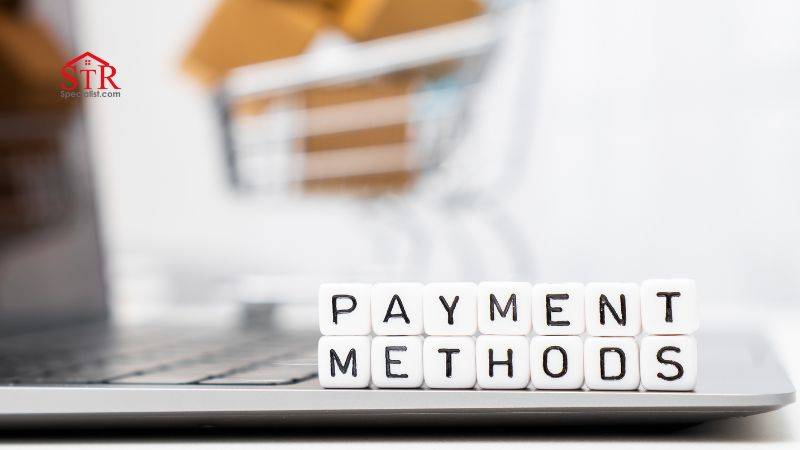
Established in 1995, Vrbo has become a leading vacation rental website, boasting an impressive user base of over 48 million active monthly users and a vast selection of 2 million listings worldwide. While Vrbo provides an excellent platform for listing vacation rental homes and reaching a broad audience, it does not permit accommodations in shared spaces. If you’re interested in renting out a separate room in your home, you might consider creating a listing on Airbnb instead. However, if Vrbo aligns with your preferences, continue reading to explore the various payment options available to Vrbo hosts. Understanding these options will provide clarity on how and when you can expect to receive payments for your bookings. Exploring Vrbo’s Payment Options for Reservations Vrbo offers a convenient payment system for owners of vacation rental homes, enabling them to list their properties, receive online bookings, and request payments from guests. As part of using the platform, owners are subject to service fees. They can either opt for a 5% fee on each confirmed booking or choose an annual subscription priced at $499. With Vrbo’s secure payment platform, travelers can make payments using major credit cards such as Visa, MasterCard, and American Express. The platform employs encryption and advanced patented tokenization services to ensure the safety of all transactions. Additionally, when travelers book and pay through Vrbo’s payment system, they are eligible for the Book with Confidence Guarantee. Vrbo also provides flexibility for hosts to define their payment terms. Hosts can specify the required amount for travelers to confirm a booking. They can choose to request 100% of the payment upon booking or set up multiple payments that can be scheduled for future dates before check-in. When utilizing the multiple payment option, hosts need to indicate the percentage that travelers must pay for each payment schedule and select the number of days before check-in when the payment is due. Upon booking, guests will be informed about the payment structure, whether it requires one, two, or three payments. Both payment methods have their advantages, and the choice depends on the host’s preferences and goals for maximizing bookings. However, managing the guest experience is equally important. How Vrbo Payments Work for Owners When creating a listing or renewing their subscription, short-term rental property owners on Vrbo can set up their payments account. This process involves logging into their Vrbo account, accessing the Payments section, and providing necessary information, including: Country of banking operations Individual owner or property manager status Contact details Banking account information (routing number, account number, and currency) Setting up the payments account takes just a few minutes, ensuring owners can securely and safely accept payments. Vrbo’s payment platform utilizes advanced systems to detect and prevent fraud. Payout Timing for Vrbo Hosts Generally, payouts are sent to Vrbo hosts approximately one business day after the guest checks in. Depending on the policies of the host’s bank, the funds are typically available in their account within 5 to 7 business days. For new Vrbo users with their first booking occurring within 30 days, the payout is usually sent to the bank account 30 days after the guest’s payment. To keep track of income across all listed properties on Vrbo, hosts can access payout dates through the payments section of their Vrbo account. Additionally, a payout summary report is available, offering an overview of received funds after deducting commissions and fees. Expanding Opportunities with Vrbo Alternatives Many vacation homeowners utilize Vrbo to generate passive income, while others aim to build successful businesses as short-term rental hosts. To increase chances of success, listing a vacation rental property on alternative platforms like Airbnb and Booking.com is recommended. This broadens the reach to potential guests and enhances booking opportunities. However, managing listings across multiple platforms can be time-consuming, requiring constant calendar updates, availability adjustments, and accurate pricing across channels. Frequently Asked Questions about Vrbo Payments Interested in learning more? Here are answers to common questions about Vrbo payments. How do payouts work on Vrbo? Guests pay Vrbo hosts directly when making reservations. Vrbo manages the payments through its secure system and disburses the funds to hosts after the guest has checked in. How can hosts find the disbursement date for payment? To find the disbursement date, log into your Vrbo account and navigate to Reservation Manager in the left navigation menu. Select Financial Reporting, then choose Bank Deposits. Click the arrow next to the desired deposit to view details such as the disbursement date, property ID, reservation ID, guest name, and deposit amount. What information is available in the payout summary report? The payout summary report offers an overview of your income from all Vrbo properties. It provides details on the received funds after deducting commissions and fees from the rental amount. You can download this report to track your earnings. For additional inquiries about hosting on Vrbo, consult the Vrbo FAQs to gain a comprehensive understanding of what it entails to become a Vrbo host. You may also like: Financial Tracking Spreadsheet for Airbnb Expenses Host Requirements for Vrbo
What is the earning potential of an Airbnb co-host?

The curiosity surrounding the income of Airbnb co-hosts often leads to an elusive search for concrete figures. In an effort to settle this question definitively, it’s time to shed light on the matter. Typically, Airbnb co-hosts earn a percentage ranging from 10% to 20% per booking. While there is no fixed amount, this range is widely regarded as fair. For instance, if you co-host an Airbnb property generating $30,000 annually, your approximate earnings would fall within the $3,000 to $6,000 bracket. The scope of your responsibilities as a co-host directly influences your potential earnings. Thus, it’s crucial for you, as a co-host, to negotiate a fair price with the primary host. To assist you further, a sample Airbnb co-host agreement template will be provided. With various factors to consider, let’s delve into the pivotal questions at hand. Unlocking the Mystery: The Earnings of a Co-Host Seeking a concrete answer to the question of co-host earnings? Brace yourself, for the truth is elusive. There exists no fixed amount as it heavily relies on various factors. However, based on extensive research, an average figure of around 20% emerges. Certain hosts may opt for a predetermined flat fee, agreed upon weekly or monthly. To gain a rough estimate of potential earnings as a co-host, refer to the accompanying graphic. Your income as an Airbnb co-host largely hinges on the scope of your responsibilities. Will you handle all tasks, including cleaning? Or will your role primarily involve guest communication and reviews? In essence, the more you undertake, the greater your earning potential. Thus, let’s explore the duties of a co-host to gain further clarity. Lastly, it’s worth noting that being a co-host presents a lucrative opportunity to generate income without owning an Airbnb property. The Payment Process for Airbnb Co-Hosts: Navigating Recent Changes Obtaining payment as an Airbnb co-host has become more challenging due to recent adjustments implemented by the platform. In the past, co-hosts could conveniently split payments, but those days have regrettably vanished, much to the dismay of hosts. Nonetheless, despite the new complexities, there are viable workarounds available. Let’s explore various methods employed by Airbnb co-hosts to receive payment. 1. BANK TRANSFER: The traditional method of bank transfer remains a reliable and commonly used option for Airbnb co-hosts to receive payments. While it is a trusted and fee-free method, it may take 1-2 business days for the payment to reflect in your account. Pros: Most popular and trusted method. No fees. Cons: Payment processing time of 1-2 business days. 2. PAYPAL: PayPal is another viable option that offers the advantage of instant payments. However, it’s important to note that PayPal charges fees for each transaction, although they are typically minimal. PayPal is a widely recognized and trusted payment method. Pros: Instant payments. Well-known and trusted worldwide. Cons: Transaction fees apply. Not everyone may have a PayPal account. 3. PAYMENT APPS: Numerous payment apps, similar to PayPal, facilitate money transfers, with popular examples including Cash.app, Zeller, and Veller. These apps allow you to send and receive money conveniently from your mobile phone or through their websites. However, it’s worth considering that these apps may have fees associated with their services, and they may not be as widely recognized or trusted as other payment methods. Pros: Instant payments. Convenient transfers via mobile phone. Cons: Additional fees may be charged. Less widespread adoption and trust compared to established brands. 4. HOSTING SERVICES: Utilizing a hosting service is an excellent option for facilitating payments between Airbnb co-hosts and property owners. Trusted platforms such as Lodgify, Whome.pt, and GuestReady provide secure means of connecting co-hosts with Airbnb property owners. While these services offer payment transfer capabilities, it’s important to be aware that they may involve higher costs compared to other payment options. Pros: Trusted, secure, and reputable services. Provides a platform for connecting co-hosts and property owners. Cons: Fees associated with these services may be higher than alternative payment methods. The Role of an Airbnb Co-Host: Responsibilities and Duties An Airbnb co-host carries out a range of responsibilities, which can vary depending on the specific agreement with the primary host. These responsibilities may encompass tasks as simple as welcoming guests at the front door or as comprehensive as handling the entire booking process. Here are some of the common responsibilities that co-hosts are typically expected to perform: Handling Reservations: Coordinating and managing reservations, including confirming bookings, handling inquiries, and assisting with the booking process. Communicating with Guests: Engaging in timely and effective communication with guests before, during, and after their stay. This includes addressing questions, providing information, and addressing any issues or concerns. Cleaning the Property: Ensuring the property is clean and presentable for guests. This can involve either personally cleaning the property or coordinating with a cleaning service to maintain cleanliness standards. Updating Calendar & Prices: Regularly updating the availability calendar and adjusting pricing based on demand, special events, or seasonal variations. Coordinating Laundry & Cleaning: Managing laundry services, ensuring fresh linens and towels are available for guests, and maintaining a high standard of cleanliness throughout the property. Rectifying Maintenance Issues: Addressing any maintenance or repair issues that may arise during a guest’s stay, such as coordinating with maintenance professionals (e.g., plumbers, electricians) to resolve issues promptly. Restocking Essential Supplies: Ensuring essential amenities and supplies are stocked and replenished for guests, such as toiletries, toilet paper, soap, and other necessities. Welcoming Guests in Person: Optional but common, personally welcoming guests upon their arrival, providing keys or access instructions, and familiarizing them with the property. Verifying Guest Identity: Implementing identity verification procedures as necessary to ensure the safety and security of the property and its occupants. Extra Guest Services: Offering additional services to enhance the guest experience, such as arranging airport transfers, providing local recommendations, or facilitating special requests. Reviewing Guests: Leaving reviews for guests based on their experience and interactions during their stay. Positive reviews are important for attracting future guests. Listing Maintenance: Regularly updating and maintaining the listing, including optimizing the title, description, and photos to attract potential guests and
Financial Tracking Spreadsheet for Airbnb Expenses
Discover the power of financial tracking for Airbnb hosts with a dedicated spreadsheet. Gain valuable insights into your revenue and expenses, paving the way for success and improvement. In this article, we’ll guide you through the process of creating a short-term vacation spreadsheet and even offer a free download of our Airbnb spreadsheet template. For those seeking advanced options, explore our premium range of spreadsheets tailored to elevate your hosting and bookkeeping endeavors. Unleash the potential of effective financial management for your Airbnb venture. A step-by-step guide to crafting your own Airbnb spreadsheet To begin creating your Airbnb spreadsheet, it’s essential to start with some initial planning. Consider the specific metrics you wish to track and determine whether you prefer a simple or more detailed approach. For a straightforward accounting spreadsheet, a basic list of revenue and expenses will suffice. However, if you desire a more comprehensive overview, you can incorporate elements like forecasts and interactive charts. Two primary areas require your attention: revenue and expenses. Once you have recorded these essential data points, you can unleash your creativity and explore various metrics to enhance your spreadsheet’s insights. 1. Revenue Begin by setting up a dedicated tab in your Airbnb Spreadsheet calculator named “Revenues.” This tab will serve as a centralized location for monitoring all your income, regardless of whether it’s from Airbnb, HomeAway, Booking.com, or other platforms you utilize. Create relevant columns to effectively track your data. Consider incorporating the following elements: Check-in and check-out dates: Record the dates when guests arrive and depart. Price breakdown: Include columns to detail various components such as cleaning fees, service fees, payment totals, and more. Guest information: Track the names of guests and the total number of individuals in each booking. Total nights: Keep a record of the duration of each booking. 2. Enhance your revenue tracking with these category ideas: Check-in, Check-out, and Payment Dates: Capture the specific dates of guest arrivals, departures, and payment transactions. Guest Name & Total Guests: Record the names of guests and keep a count of the total number of individuals in each booking. Total Nights of Booking: Track the duration of each reservation, providing insight into booking lengths. Price Breakdown (Cleaning Fees, etc.): Include a breakdown of pricing components such as cleaning fees, service charges, and other relevant expenses. Platform (e.g., Airbnb, HomeAway, Booking.com): Specify the platform through which each booking was made, helping you assess revenue distribution across different channels. Lastly, ensure your spreadsheet is aesthetically pleasing and easy to read. A clean and well-organized format enhances usability and avoids the frustration of a cluttered appearance. Optimize your Airbnb spreadsheet for a visually appealing and user-friendly experience. 3. Expenses Setup Costs: Begin by accounting for the expenses incurred during the initial setup of your Airbnb. It’s advisable to create a separate tab to keep these costs distinct from ongoing expenses. Ongoing Operational Costs: These are the expenses associated with running your Airbnb on a day-to-day basis. Some common categories to consider are: Utility Costs: Include gas, electricity, water, and other related expenses. Property Expenses: Account for costs such as mortgage payments, repairs, property taxes, and similar expenditures. 4. Explore these expense category ideas for effective Airbnb tracking: Utilities: Capture expenses related to gas, electricity, water, and other utility services utilized in your Airbnb. Property: Account for costs such as mortgage payments, repairs, property taxes, and any other expenses directly associated with the property. Supplies: Track expenditures for essential items like linens, toiletries, cleaning supplies, and other consumables necessary for maintaining your Airbnb. Business: Include expenses related to accounting services, software subscriptions, educational resources, and any other business-related costs. Setup Costs: Document expenses incurred during the initial setup phase, such as furniture purchases, kitchenware, and other items needed to furnish your Airbnb. Staff: If you employ cleaners, laundry services, or photographers, record their fees or wages as part of your staff expenses. Insurance: Account for insurance premiums and any other related costs to ensure coverage and protection for your Airbnb property. Finally create columns for Airbnb expenses: Date, Description, Cost, Category. Optionally include Vendor and Taxes. Key Metrics For Airbnb Spreadsheet Deciding on the performance metrics to track on your Airbnb spreadsheet is an exciting task. Microsoft Excel offers powerful capabilities to manipulate your tracked revenues and expenses, allowing you to present data in visually appealing ways through graphs and charts. Let’s start with the most crucial metric: earnings. Knowing whether you’re making money or not is essential. After all, it’s the ultimate measure of success, right? Here are some ideas for key metrics to include in your Airbnb spreadsheet: Total earnings: Track your earnings on a monthly or yearly basis to understand your overall financial performance. Occupancy stats: Monitor the occupancy rate of your property to gauge its popularity and utilization. Expenses by category: Categorize your expenses to gain insights into where your money is being allocated. Expenses by room: Analyze expenses specific to different areas of your property, such as bedrooms or lounges. Earnings by platform: If you list your property on multiple platforms like Airbnb, HomeAway, or others, track earnings from each platform separately. Average earnings: Calculate the average earnings per night, per month, or any other relevant time frame to assess the financial potential of your property. Projected earnings for the year ahead: Estimate your expected earnings for the upcoming year based on historical data and booking trends. Managing Multiple Properties on Airbnb Spreadsheet Managing multiple properties on an Airbnb spreadsheet can be a bit more complex, but there are effective ways to handle it. One approach is to assign each property to its own tab within a single spreadsheet. By linking these tabs to a central Dashboard page, you can easily compare and analyze data for each property side by side. Alternatively, you can create separate spreadsheets for each property. While this method can be more cumbersome, it provides a dedicated space for tracking the specific details of each property. If you’re looking for assistance with managing multiple properties on a spreadsheet, BnbDuck offers a line
Host Requirements for Vrbo
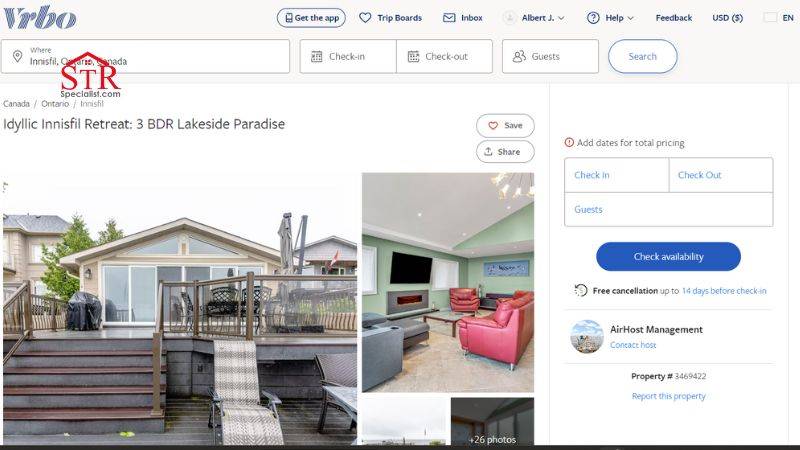
Are you considering renting out your vacation home on Vrbo? Find out the essential requirements you need to meet before creating a listing on this popular OTA platform. Learn about local short-term rental regulations and ensure you’re prepared to meet Vrbo’s criteria for hosting success. Start earning extra income from your property today. Staying Compliant with Local Vacation Rental Regulations: Vrbo Requirements As the vacation rental industry expands, numerous state and local governments have implemented laws to regulate short-term rental properties. These regulations vary from one town to another, but certain common policies prevail. Zoning regulations and ordinances are frequently enforced, designating specific zones for short-term rentals. Many cities mandate registration, permits, general business licenses, and short-term rental licenses for property owners. Caps on the number of short-term licenses issued within a jurisdictional boundary are imposed in certain communities. Some jurisdictions and community HOAs prohibit any form of short-term rentals. Certain areas require vacation rental owners to collect transient occupancy taxes from guests and remit them to tax authorities. Parking, building safety, health codes, and liability insurance regulations may also apply. To ensure compliance with your region’s legislation and city ordinances, it is crucial to conduct thorough research, visit government websites, and contact local authorities before creating your Vrbo listing. Listing Requirements for Vrbo: Ensuring a Successful Vacation Rental Listing When it comes to listing your property on Vrbo, whether it’s your primary residence or a vacation home, you’ll find a straightforward process guided by the platform. However, it’s important to note that Vrbo specializes in whole homes and does not accept shared spaces. As a host, you have two options for Vrbo listing fees. You can choose a one-time annual subscription fee of $499, covering all bookings received throughout the year, which is suitable for hosts renting their properties year-round. Alternatively, you can opt for the pay-per-booking fee, where you are charged a small commission (8% + applicable tax) only after receiving a booking. To meet Vrbo’s host requirements, your listing must accurately describe the rental property and adhere to the platform’s Marketplace Standards. These standards ensure a simple, secure, and consistent booking experience for guests, while also enhancing listing visibility for compliant hosts. To ensure your listing meets basic quality standards, be sure to include the following: A headline with a minimum of 20 characters A property description with a minimum of 400 characters At least six photos showcasing your property Details about the bedrooms and bathrooms Accurate property address and latitude/longitude codes Specification of the property registration number, if required by local jurisdictions Updated information on bookings and calendar availability, along with transparent rates and fees A list of top-searched amenities Clearly stated house rules and policies It’s important to note that all bookings must be processed through the Vrbo marketplace. Therefore, host listings must not include any content that directs travelers to book outside of Vrbo’s checkout flow, such as URLs, email addresses, phone numbers, or property addresses. While platforms like Vrbo, Airbnb, and Booking.com offer excellent exposure to a broad audience and help build trust with new guests, it is also recommended to create a direct booking website to establish guest relationships and secure repeat bookings without incurring OTA fees. Photo requirements for VRBO Captivating, high-quality photos of your rental space and its surroundings are crucial to the success of your Vrbo listing. These images help establish an emotional connection with potential travelers and can significantly increase booking potential. Vrbo recommends including a minimum of 25 sharp, well-lit, high-resolution photos that are in landscape view (horizontal) rather than portrait view (vertical). To ensure your photos meet Vrbo’s requirements, consider the following guidelines: Minimum resolution of 1024 x 683 pixels: This ensures that your photos are clear and visually appealing. Maximum file size of 20 MB: Keep the file size within the designated limit to ensure smooth uploading. Accepted formats: Vrbo allows photos in JPEG/JPG, PNG, or GIF formats. Avoid low resolution, blurry, or dark photos: Make sure your images are crisp, clear, and well-lit, showcasing your property in the best possible light. Do not use black and white photos: Color images are preferred to provide an accurate representation of your rental space. Ensure proper orientation: Make sure your photos are correctly oriented and display your property in the most visually pleasing way. Use relevant photos: Only include images that accurately represent your property and its surroundings. Avoid unrelated or misleading visuals. Avoid watermarked, inappropriate, or copied photos: Your photos should be original and adhere to Vrbo’s guidelines. It’s worth noting that Vrbo has a feature that identifies photos that do not meet their requirements. If any of your photos are flagged, it is important to replace them with images that align with Vrbo’s criteria. Pro Tip: Enhance your listing by adding a virtual tour. This immersive experience allows travelers to explore your property’s layout and amenities, enabling them to make faster decisions and potentially leading to more bookings. By following Vrbo’s photo requirements and utilizing additional features like virtual tours, you can enhance the visual appeal of your listing and increase its overall attractiveness to potential guests. Ensuring Safety at Your Vacation Rental: Vrbo Host Requirements Maintaining a safe environment for your guests is of utmost importance as a Vrbo host. Here are essential measures you should take to prioritize the well-being of your guests: Provide emergency contact information: Furnish your guests with local emergency service contact details and nearby hospital information. Additionally, make sure they are aware of how to reach you promptly should any issues arise during their stay. Implement fire safety measures: Equip your vacation home with essential fire safety equipment, including smoke detectors, carbon monoxide detectors, and a fire extinguisher. Regularly check and maintain these devices to ensure their proper functionality. Offer a first aid kit: Place a well-stocked first aid kit in a readily accessible location within your vacation rental. Ensure it contains necessary items to address minor injuries or health concerns. Communicate about security measures: If your vacation rental property has security cameras
Is Third-Party Booking Permitted on Airbnb?
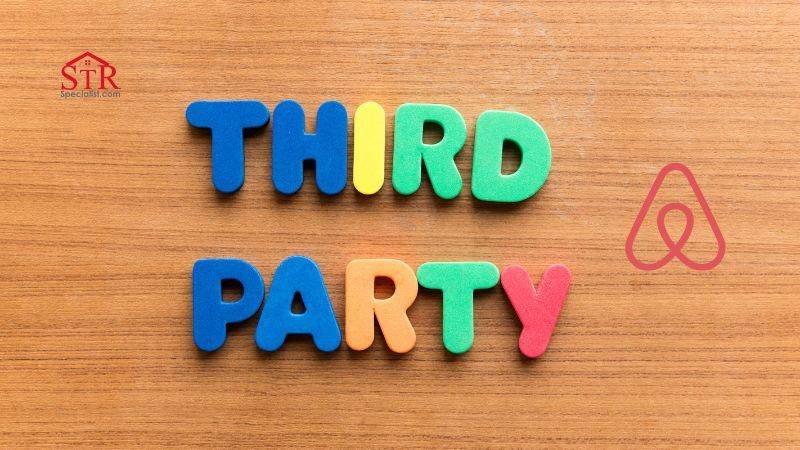
One common mistake that both hosts and guests often overlook on Airbnb is the issue of third-party bookings. As an experienced Airbnb host, I have witnessed this scenario time and time again, and it’s crucial to grasp the potential consequences. So, let’s delve into the question: Does Airbnb allow third-party bookings? The answer is no, Airbnb does not permit third-party bookings. Their policy explicitly states that the individual who made the reservation must be the one staying at the property. It’s important to note that third-party bookings are not covered by Airbnb’s insurance policy, adding an additional layer of risk. To shed more light on this matter, I have dedicated this article to provide a detailed explanation. It is essential for both hosts and guests to familiarize themselves with these guidelines. However, there are certain exceptions or “loopholes” that I will elaborate on below. Understanding Airbnb Third-Party Bookings Curious about what constitutes a third-party booking on Airbnb and whether or not they are allowed? Let’s delve into a common scenario that frequently arises with third-party bookings on Airbnb. Imagine this: Your daughter is attending an event in a nearby city and has never used Airbnb before. You kindly offer to book an apartment for her and her partner using your own Airbnb account. At first glance, this may seem innocent enough. However, the implications become apparent when the host reviews the booking details. Hosts typically assess potential guests based on their Airbnb profiles and reviews. In this case, the host would expect a mature woman with an impeccable track record to arrive. Imagine their surprise when a teenager and their partner show up instead. It’s easy to understand why the host might feel misled. Moreover, if the daughter were to cause any damage to the apartment, Airbnb’s insurance would not cover her. This is because she did not personally agree to Airbnb’s terms and conditions during the booking process. For a more comprehensive discussion on this topic, I recommend reading my article on whether Airbnb is covered by travel insurance. It becomes evident that third-party bookings pose risks for both hosts and guests alike. Is Third-Party Booking Permitted on Airbnb? In regards to third-party bookings, Airbnb does not allow them. Airbnb emphasizes the importance of transparency and trust within their platform, which means the person who made the booking must be the one staying at the property. According to Airbnb’s official policy, reservations made for personal travel should be booked by the individual who intends to stay at the listing. This policy ensures that hosts can rely on the information provided on a guest’s profile page to determine if they are a suitable fit for their property. In summary, Airbnb’s stance on third-party bookings is clear: the person making the reservation must be the one who will be occupying the accommodation. Exploring Alternatives for Third-Party Bookings If you find yourself in a situation where you need to accommodate someone without an Airbnb account, or if someone else has made the booking for you, or even if your employer has arranged an apartment for your stay, here are some alternatives to consider as a host: 1. Cancel the Booking Penalty-Free: If you discover that your guest has made a booking on behalf of someone else, you can contact Airbnb and request the cancellation of the reservation. The cancellation can be done without incurring any fees or negative impact on your Superhost status. 2. Communicate with Your Guest: In the event that the individuals who made the booking are not the ones staying at your property, you have the option to discuss the situation with your guest. One possible solution is to ask unregistered guests to create their own Airbnb account and book the accommodation using their own credentials. Keep in mind that the person who initially made the booking may face a cancellation fee. However, this is a preferable outcome compared to hosting an uninsured guest, which could potentially result in greater costs and risks. 3. Request ID Verification and Signed Form: If you decide to proceed with the booking for any particular reason, it is advisable to take precautionary measures. These precautions may include requesting a copy of the ID or passport from the guests, having them sign a waiver form, or engaging in written communication through the Airbnb app where the third party acknowledges and accepts all associated risks. It’s important to note that allowing third-party bookings always carries inherent risks. Airbnb evaluates such bookings on a case-by-case basis, and their acceptance or scrutiny will depend on the specific circumstances involved. Finding Solutions for Guests in Third Party Booking Situations If you’re a guest facing the need for a third-party booking on Airbnb, don’t worry – there are workarounds available. Consider the following ideas: 1. Create Your Own Account and Get a Free Credit: Take advantage of Airbnb’s referral program. If a friend refers you to Airbnb, you can receive a credit towards your first stay. If you don’t know anyone with an Airbnb account, there are special referral codes available. You can also explore my guide on Airbnb’s first booking coupon code for more information on this subject. 2. Transfer Third-Party Booking to Another Account: If you’ve already made a booking for a friend and realize that it’s not allowed, there are options to rectify the situation. Contact Airbnb and explain the circumstances. While success may vary depending on the customer service representative, Airbnb may allow you to transfer the booking to your friend’s account without incurring any fees. Have your friend create an Airbnb account (using your referral credit, if applicable), and request to change the booking to their account. Communicate with the host, explaining the situation and your intention to transfer the booking. Ideally, obtain written confirmation through the Airbnb app. Your next step is to contact customer service and request the necessary changes. 3. Sign Up with Airbnb for Work: Consider utilizing Airbnb’s Work Collection feature. This feature is specifically designed for work-related trips and takes third-party bookings into account.
Insider’s Guide: Uncovering the Top Airbnb Deals

Discover the secrets to securing the ultimate Airbnb deals and never pay full price again. From timing your bookings to selecting the perfect listing, this comprehensive article unveils a plethora of discounts, coupons, and clever tactics that guarantee incredible savings. Whether it’s a short stay or an extended period, follow these expert guides to unlock the best deals and make every booking a budget-friendly success. Unlocking the Secrets to Finding the Best Airbnb Deals Discovering incredible accommodation options on Airbnb has become easier than ever. With Airbnb’s stringent guidelines for hosts, ensuring quality stays, finding the perfect place has never been more accessible. When embarking on your search, leverage the power of filters to streamline your experience and eliminate unsuitable listings. From narrowing down options based on suitability for kids or pets to selecting the desired type of Airbnb, number of bedrooms, and price range, filters are your key to refining your search. Don’t forget to check for essential amenities like heating and cooling to ensure a comfortable stay. When it comes to finding your ideal Airbnb listing, the key is in the details. Once you’ve identified the type of listing that suits your needs, take advantage of the map feature to narrow down your search to a specific area. This allows you to ensure central proximity or avoid certain neighborhoods, depending on your preferences. Reviews play a crucial role in your decision-making process. They provide valuable insights into the experiences of previous guests, giving you a glimpse of what to expect. Pay close attention to both positive and negative reviews, as they offer a window into the host’s responsiveness and professionalism. A host who handles feedback graciously and professionally is typically a good sign. With a listing that meets your requirements and favorable reviews in hand, it’s time to secure your booking. But before you do, discover the optimal timing for nabbing the best deal. Stay tuned to learn about the strategic approach that maximizes your chances of scoring an incredible offer. Cracking the Code: Finding the Optimal Time to Book Your Airbnb Timing is everything when it comes to securing the best deals on Airbnb. To maximize your savings, aim to book your stay approximately six to ten days before your trip. During this window, prices tend to drop by up to 18% as hosts strive to fill their calendars. However, it’s important to consider other factors that can influence prices and availability. In bustling cities with hundreds of listings, hosts often reduce prices to stay competitive, resulting in more affordable options. On the other hand, properties in smaller tourist towns may maintain higher prices due to limited competition. Avoid booking an Airbnb too far in advance if your goal is to snag a great deal. When you book 30 days or more ahead of your trip, hosts have ample time to sell those dates and offer fewer discounts or incentives. Unlocking Savings: Extend Your Stay for Better Deals Believe it or not, booking more nights than you initially need can actually work in your favor when it comes to reducing the price of your stay. It may sound counterintuitive, but it’s true. Many hosts offer attractive weekly and monthly discounts to their guests. So, if you initially planned to stay for just six nights, consider extending your trip by one more day. By doing so, you’ll qualify for the weekly discount, allowing you to enjoy significant savings on your overall stay. Cracking the Last-Minute Airbnb Deals Myth Is Airbnb cheaper when booked last minute? The answer is yes but with some caveats. Just like hosts offer weekly and monthly discounts, they may also provide last-minute discounts. These discounts are automatically applied when you enter your desired dates. However, it’s important to note that these last-minute discounts typically range around 5%, making them less reliable for significant savings. Booking last minute can also present limitations. Since guests have likely already booked the best-value listings, your selection may be limited. As a result, you may not have as many options to choose from compared to booking in advance. In summary, it is true that Airbnb prices may be cheaper when booked last minute. However, it’s important to keep in mind that the selection may be limited, and the discounts may not be substantial. So, while it’s worth exploring, relying solely on last-minute bookings may not guarantee the best deals. Unleash the Art of Negotiation: Securing the Best Airbnb Deals Similar to purchasing a new car, accepting the first offer on Airbnb is not always the best strategy. Negotiation can be a powerful tool to help you secure the ultimate deal, but it requires finesse to avoid missing out on a fantastic property. The key to successful negotiation with Airbnb hosts lies in being respectful and polite throughout the process. By following these simple steps, you can increase your chances of obtaining that coveted discount: Mastering the Art of Airbnb Negotiation: Insider Tips 1. Begin by selecting your desired dates and specifying the number of guests. Then, navigate to “The Host” section of the listing and click on the “Contact Host” button. 2. Take this opportunity to communicate with the host and share why you are interested in booking their home. Provide a brief introduction about yourself, fostering a personal connection. 3. Once the host approves your request to book, it’s time to inquire about a potential discount. Remember, you’re dealing with a homeowner, so approach the negotiation with respect and fairness. Avoid being overly demanding or greedy. 4. If the host agrees to offer a discount, they will send you a special offer for your consideration. Take the time to review the offer thoroughly. 5. If you are satisfied with the negotiated price, go ahead and accept the offer to secure your booking. By following these insider tips, you can skillfully engage in Airbnb negotiations and increase your chances of obtaining a favorable discount while maintaining a respectful and positive interaction with the host. 1. Explore Other Booking Sites While we’re focused on
Is Airbnb a Secure Accommodation Option?
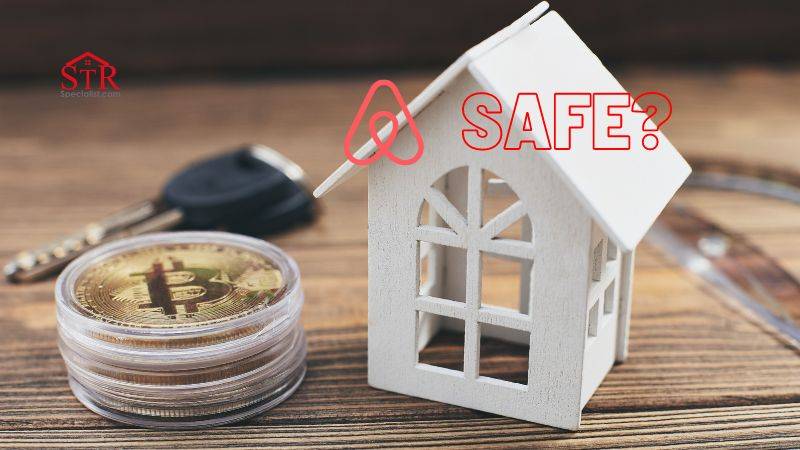
Discover the truth about Airbnb’s safety measures in this comprehensive guide. Get all the answers to your burning questions and learn how to enhance your safety while booking with Airbnb. With 15 actionable tips and insights from personal experiences, this article is your go-to resource for ensuring a secure and worry-free stay. Bid farewell to uncertainties and embark on your Airbnb adventures with confidence. Exploring the Safety of Airbnb Accommodations Curious about the safety of staying in an Airbnb? Rest assured, your safety is of utmost importance to Airbnb. To gain a better understanding of their safety protocols, we recommend visiting the Airbnb safety process page. Here, you’ll discover the comprehensive measures taken to ensure the safety and well-being of guests during their stays. Ensuring Safety on Airbnb: 15 Essential Tips Are you concerned about the safety of using Airbnb? Fear not! In this article, we present 15 compelling reasons why Airbnb is a secure platform for your accommodation needs. Stay informed and discover valuable tips to maximize your safety while using Airbnb. Embrace worry-free travel with confidence and peace of mind. 1. Harnessing the Power of Reviews and Ratings on Airbnb for Safety When it comes to ensuring your safety on Airbnb, there’s one golden rule: always check the reviews. Just as I do, you should never book an Airbnb without thoroughly examining the reviews first. Let me guide you through the process. First and foremost, focus on the average ratings and total number of stays hosted by the host. Look for hosts who have hosted a significant number of stays (ideally over 50) and maintain an average rating of 4.8 stars or higher. Imagine discovering a listing with an impressive average rating of 4.95 stars and 130 hosted stays. It’s highly likely that staying in this Airbnb will be a safe experience, wouldn’t you agree? Once you find a listing that catches your attention, it’s time to dive into the guest reviews. Reviews provide invaluable insights. Guests often share their experiences, including any negative aspects they encountered. By carefully reading reviews, you may uncover recurring patterns. Guests might mention unsafe stairs leading to the Airbnb or express concerns about the neighborhood’s safety. These red flags will become evident. Moreover, guests are quick to expose any unsafe Airbnb hosts. If a host consistently receives negative reviews, Airbnb takes action and removes their listing. This is precisely why the review system plays a crucial role in maintaining safety standards. 2. Utilize the Airbnb Review Filter: Unveiling Hidden Insights Let’s continue our exploration of Airbnb reviews by delving into the remarkable tool that deserves its own spotlight: the Airbnb review filter. Did you know that Airbnb offers a convenient review filter that allows you to search for specific keywords? This feature proves invaluable in identifying reviews with particular keywords and unveiling patterns, as discussed in the previous section. Furthermore, the review filter provides a detailed breakdown of the average star ratings across six categories: location, communication, check-in, cleanliness, accuracy, and value. Examining these category ratings can swiftly highlight any potential red flags indicating an unsafe Airbnb. Clearly, this review filter is a powerful tool at your disposal! Consider searching for keywords like “safe,” “unsafe,” “bad,” “dirty,” and others that can assist you in determining whether an Airbnb may not be safe to stay in. The category ratings themselves also reveal a compelling story. When faced with low cleanliness and accuracy ratings, it becomes crucial to question the trustworthiness of the host. 3. Unlocking Insights through Airbnb Host Profiles Another valuable tip to ensure your safety is to thoroughly read Airbnb host profiles. Host profiles can provide valuable information that helps you make an informed decision. First and foremost, attentive hosts will invest time in crafting detailed descriptions about themselves in their profiles. A well-developed profile signifies a commitment to being a responsible Airbnb host. Secondly, it’s prudent to review the identification credentials that hosts provide to Airbnb. Expect a host to have a government ID, phone number, and email listed as a minimum requirement. Lastly, take advantage of the opportunity to read all the host’s reviews on their profile page. This includes reviews from their experiences as both a host and a guest. If the host manages multiple properties, you can access reviews for all their properties on this page. In summary, it is crucial to always check a host’s profile before finalizing a booking. This step enables you to identify any potential red flags early on and avoid making a regrettable mistake. I encourage you to explore my comprehensive guide on Airbnb profile examples by visiting the provided link. Who knows, it might even inspire you to create an exceptional profile for yourself! 4. Opt for Safety: Trust Airbnb Superhosts If your primary concern is safety when booking an Airbnb, then relying on Superhosts is an excellent strategy. But what exactly is an Airbnb Superhost, you may wonder? Airbnb recognizes and rewards exceptional hosts with the prestigious title of Superhost. Attaining Superhost status is a testament to a host’s outstanding performance. To qualify as an Airbnb Superhost, hosts must meet four criteria. Firstly, they must maintain an average rating of 4.8 stars or higher based on guest reviews. Secondly, they must never cancel bookings, ensuring reliability. Thirdly, they should have successfully completed at least 10 or more stays within a calendar year. Lastly, they must maintain a 90% response rate, reflecting their commitment to effective communication. By booking with Superhosts, you can have confidence in their dedication to providing a safe and enjoyable experience for their guests. Choosing Superhosts enhances your chances of a secure and memorable stay. Becoming an Airbnb Superhost is undoubtedly a significant achievement. In addition to the host’s dedication, there are benefits that extend to guests, including enhanced visibility in search results. Identifying Superhosts is easy. Simply look for the distinctive Superhost badge displayed next to their profile photo. Furthermore, when browsing a listing, Airbnb prominently showcases the Superhost status. In conclusion, if your priority is safety on Airbnb, I strongly


